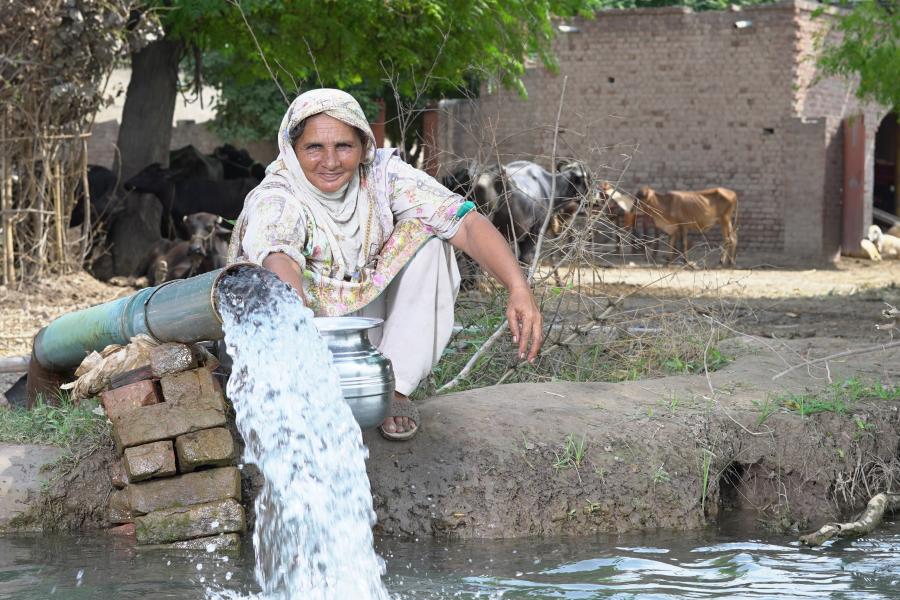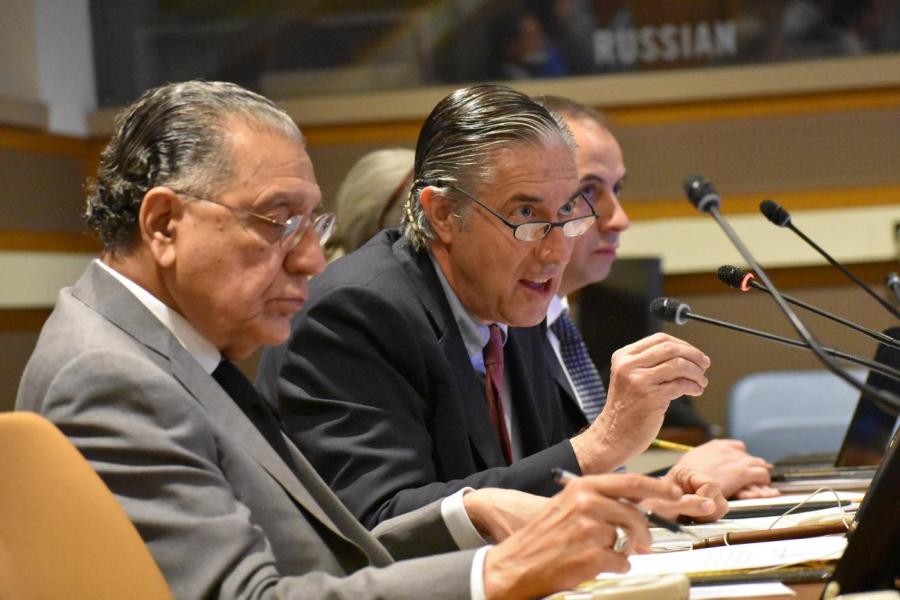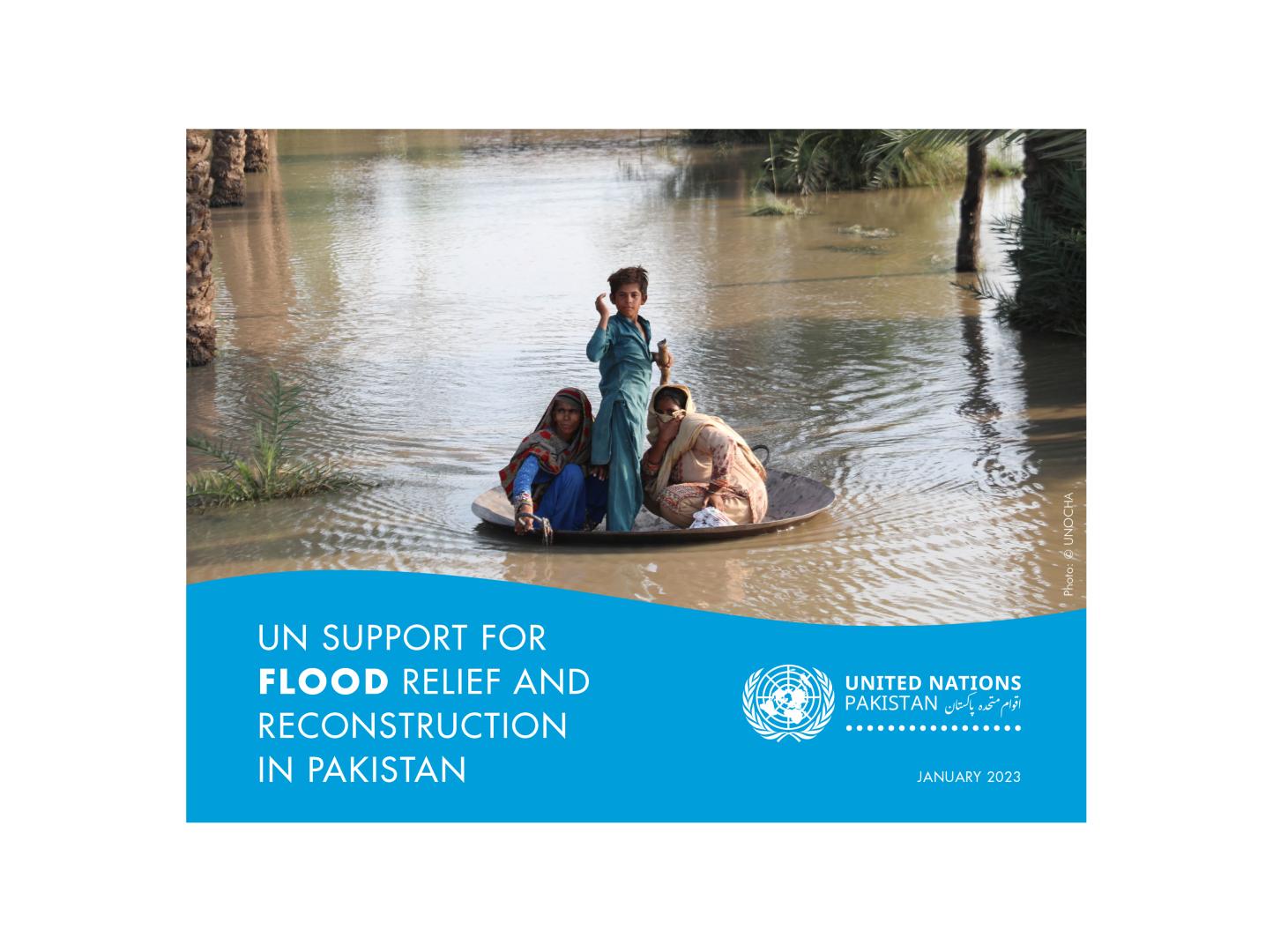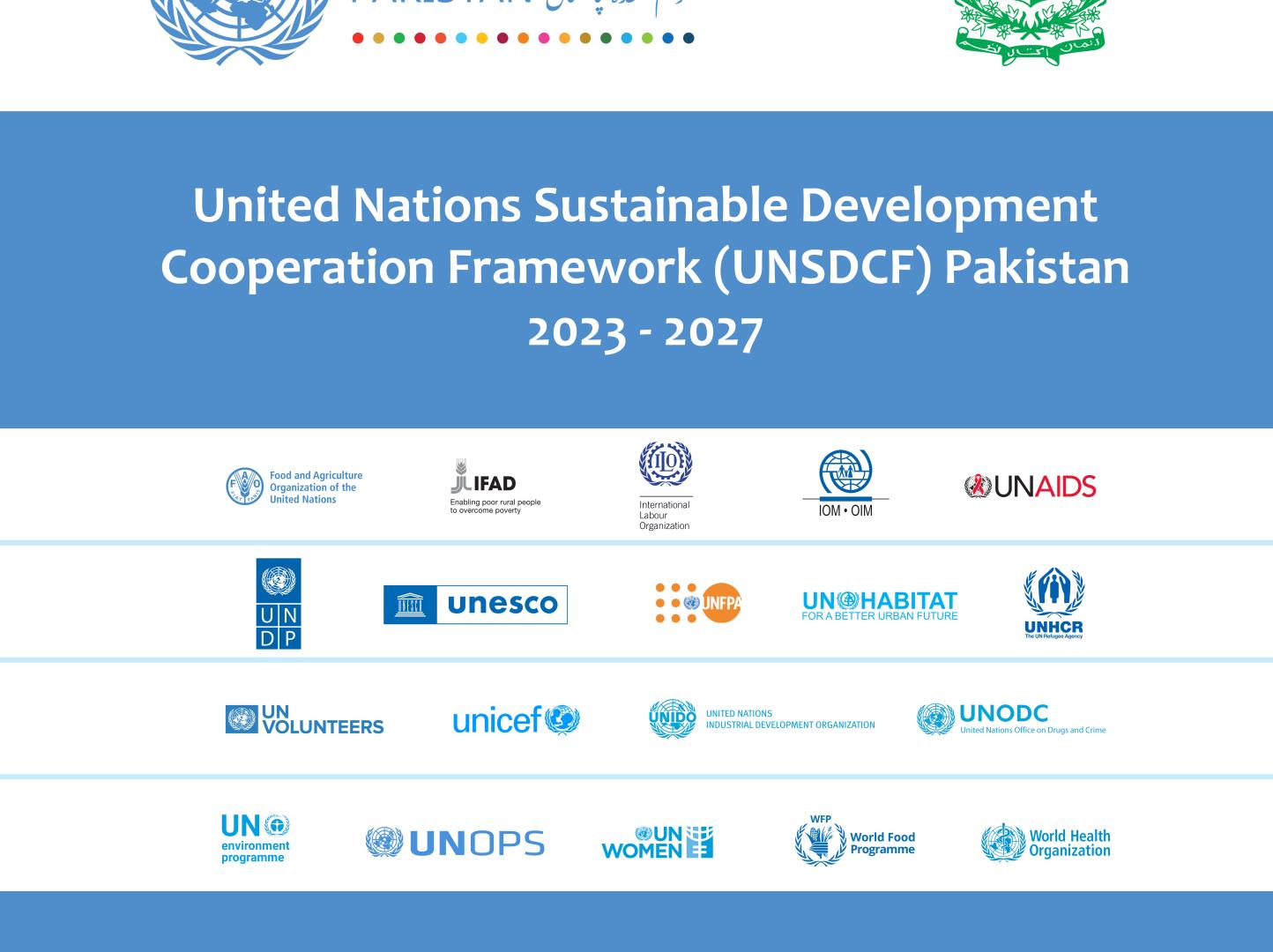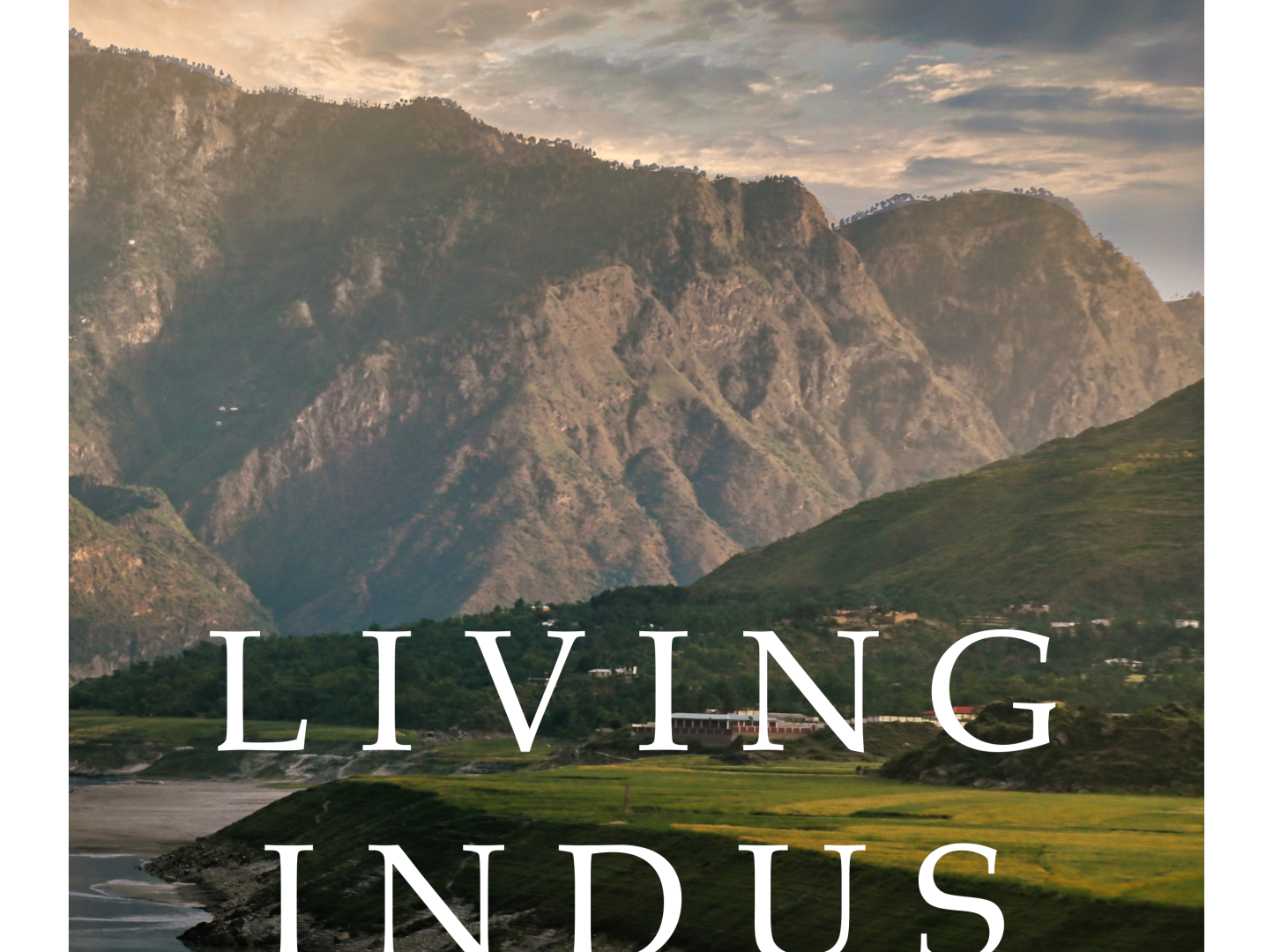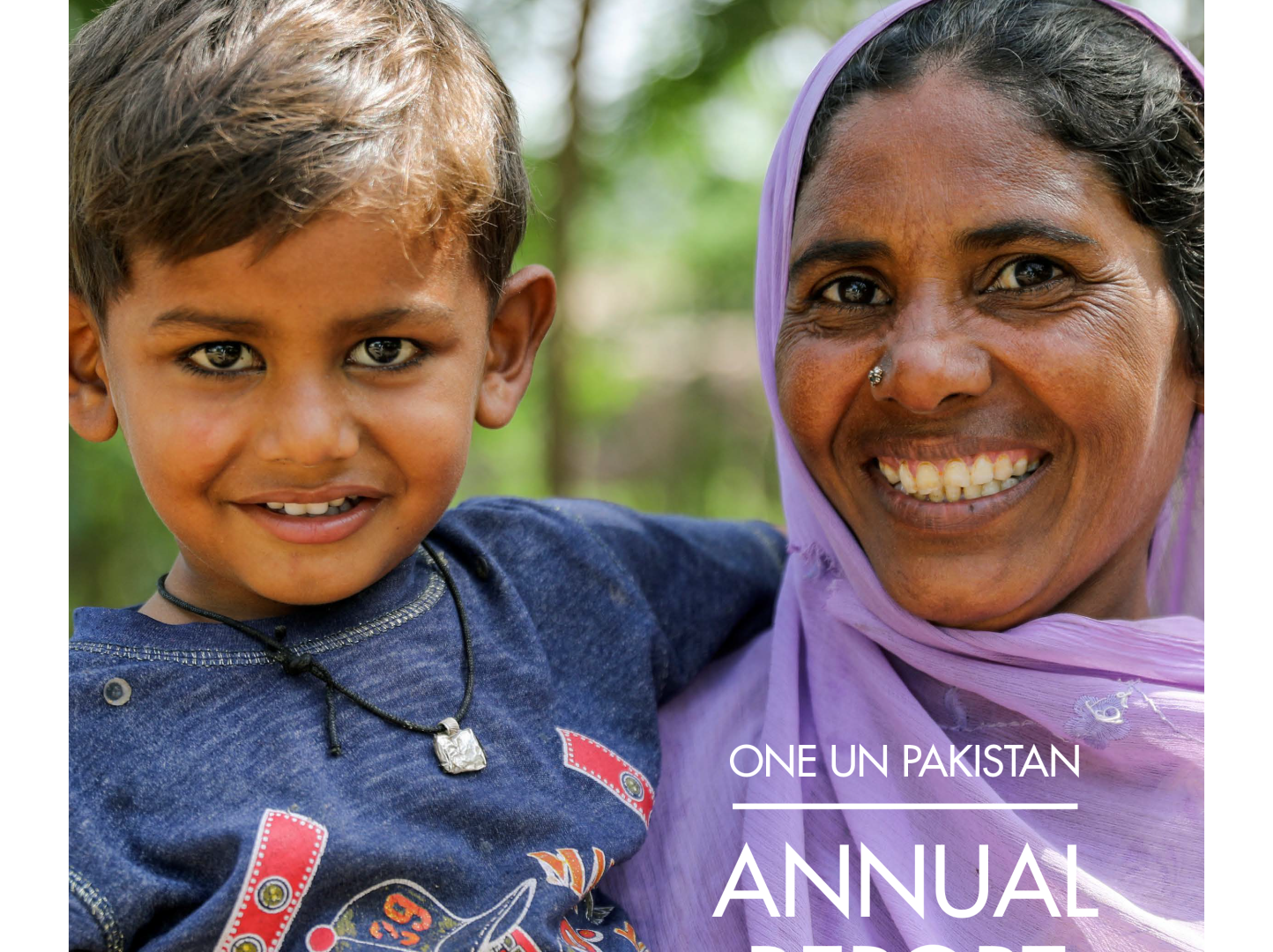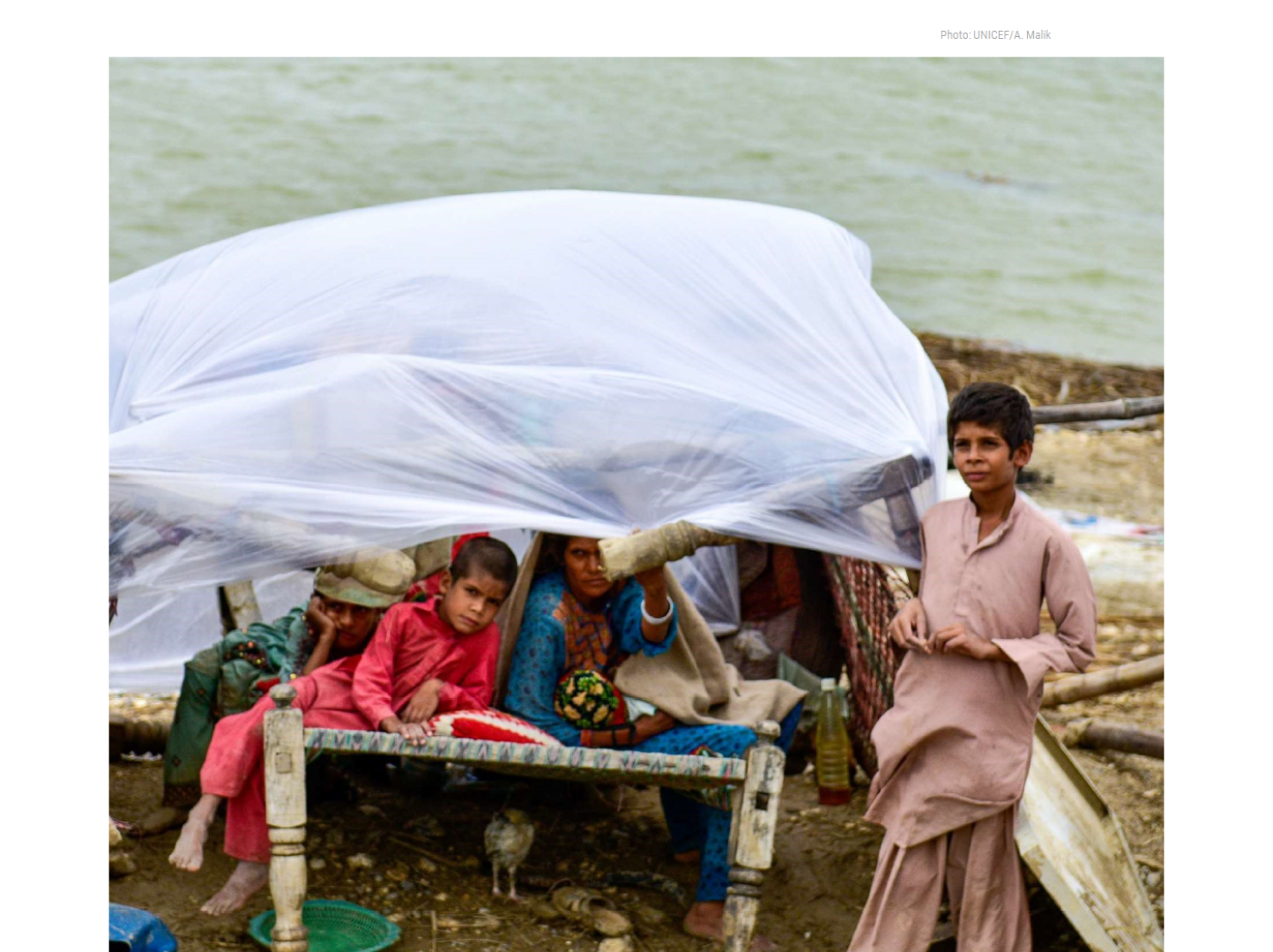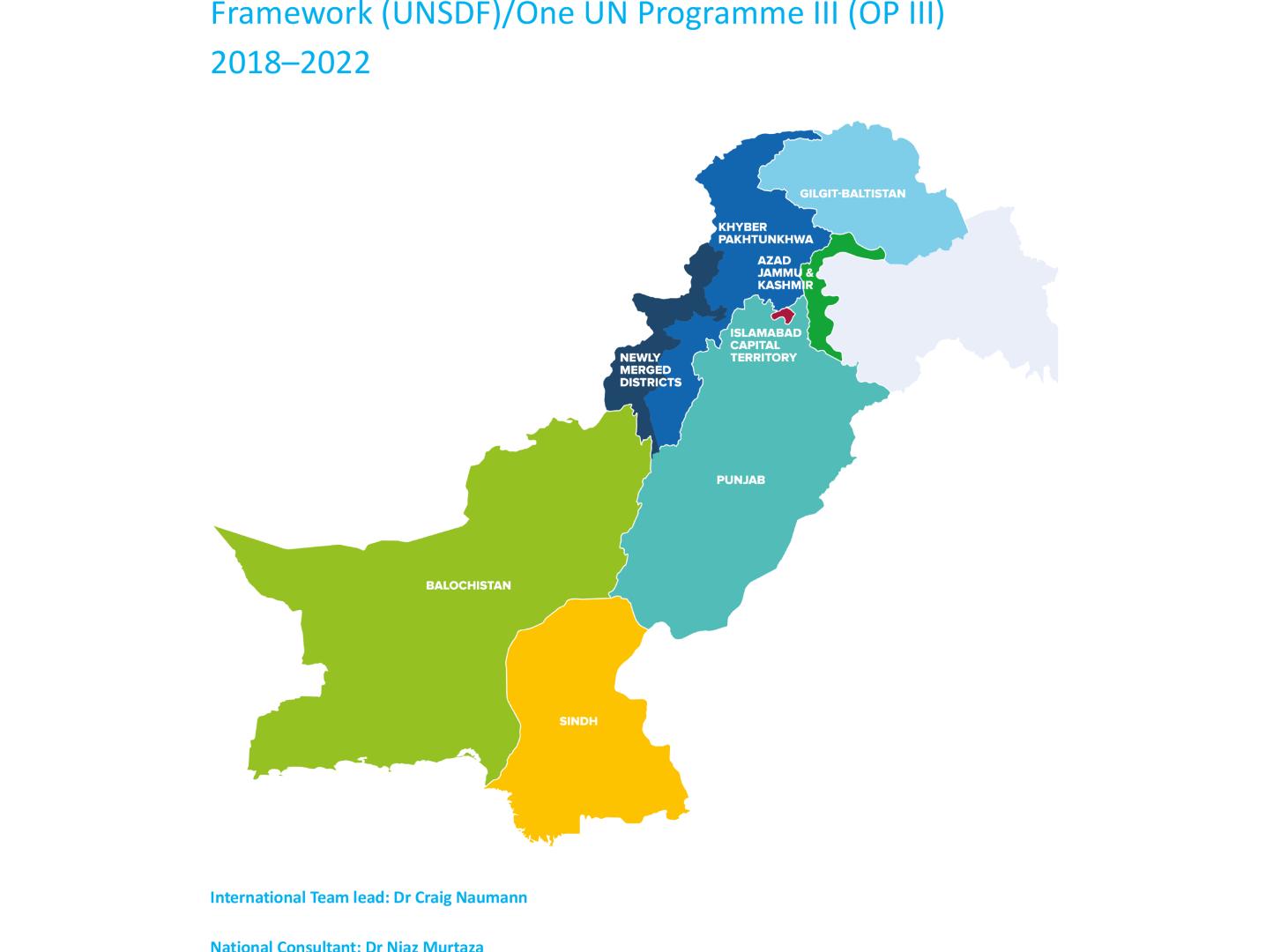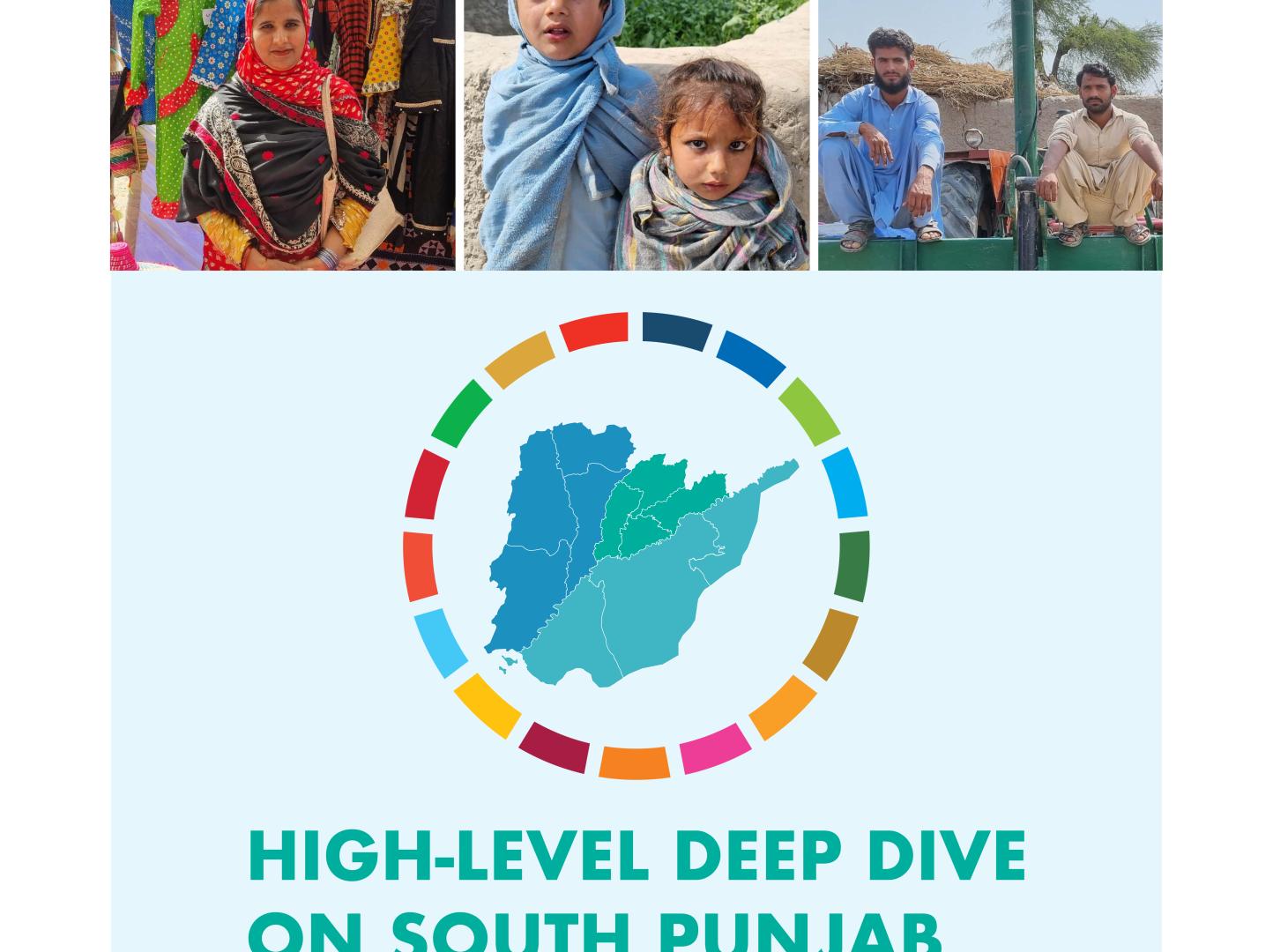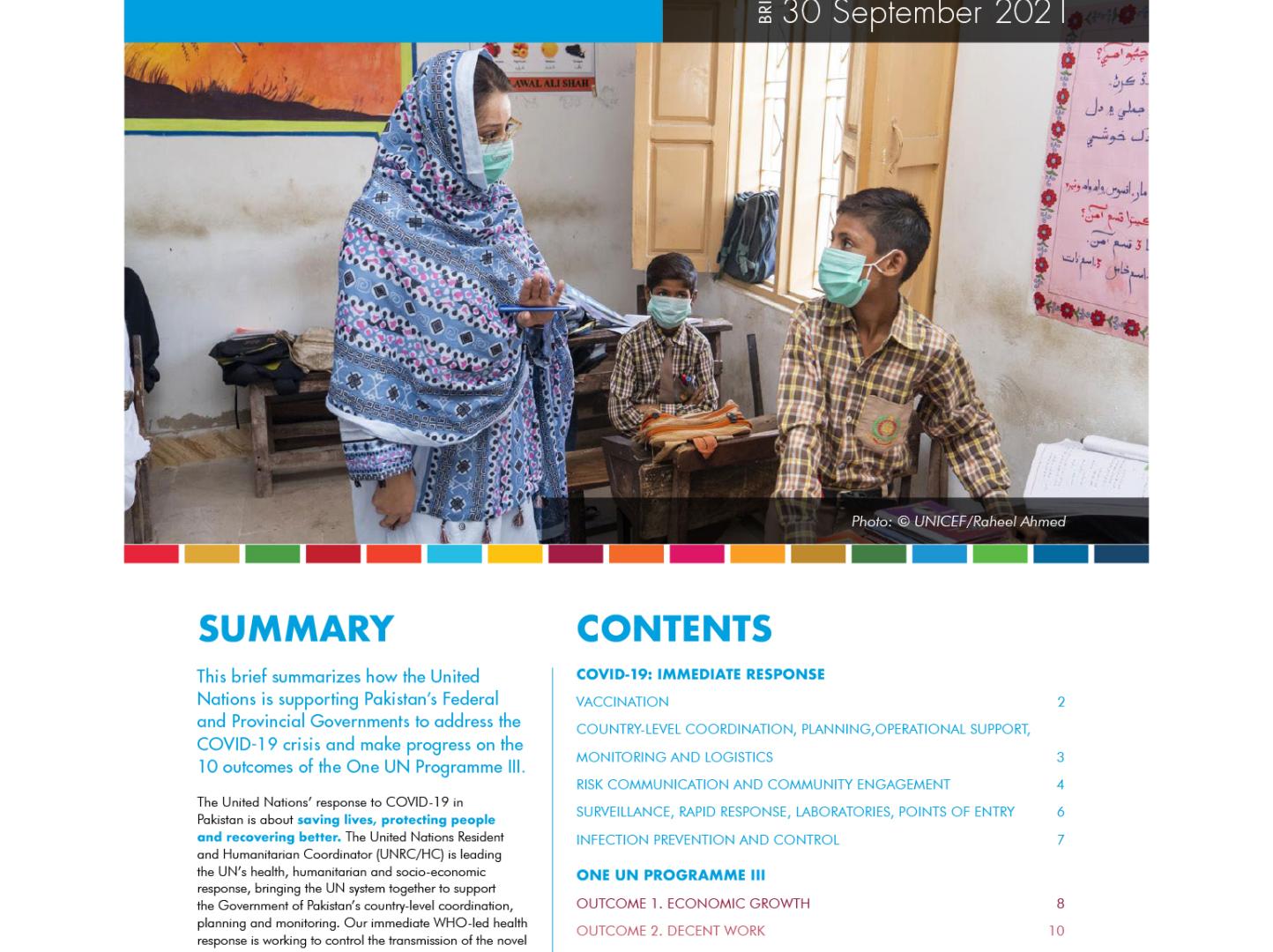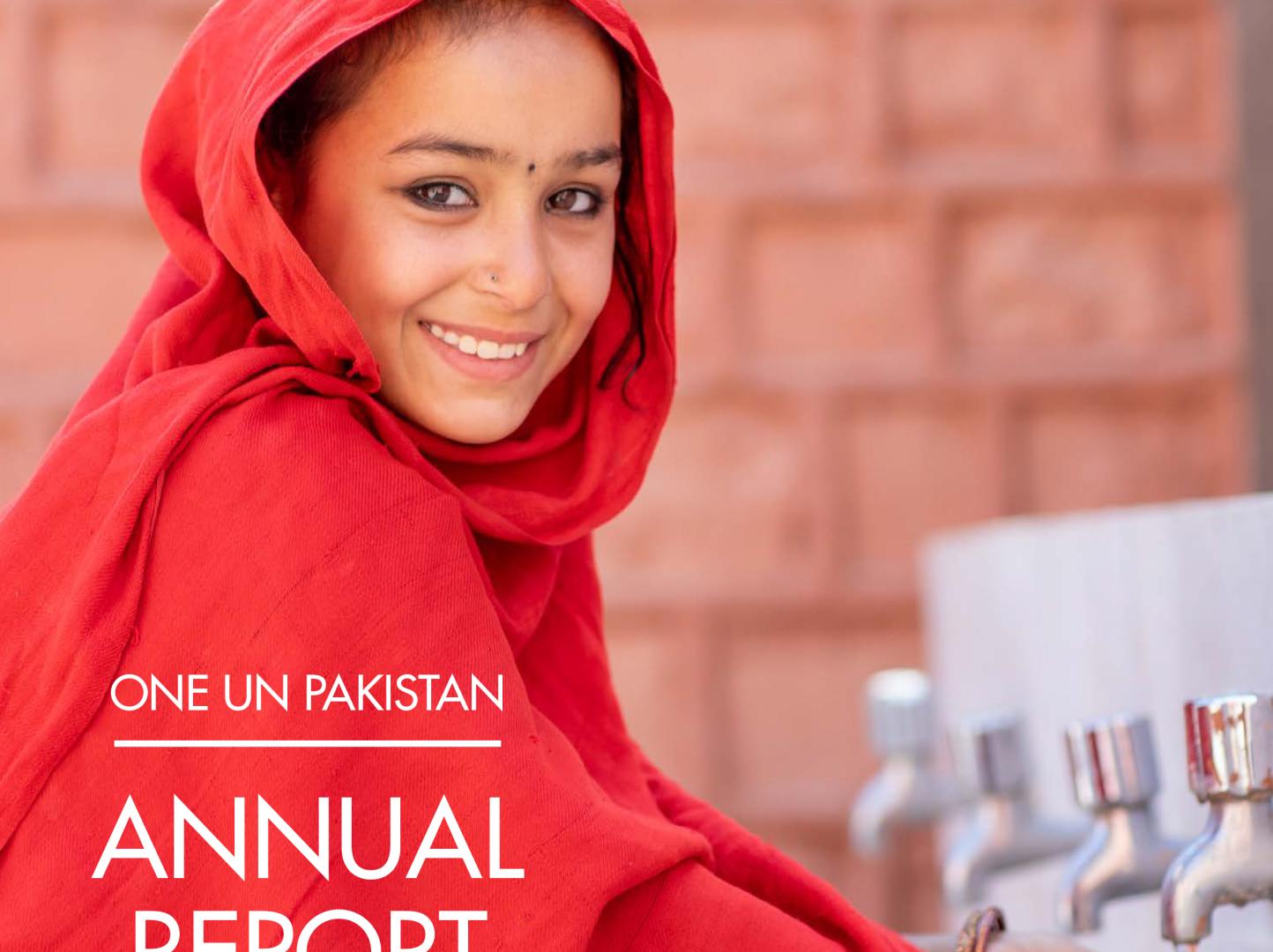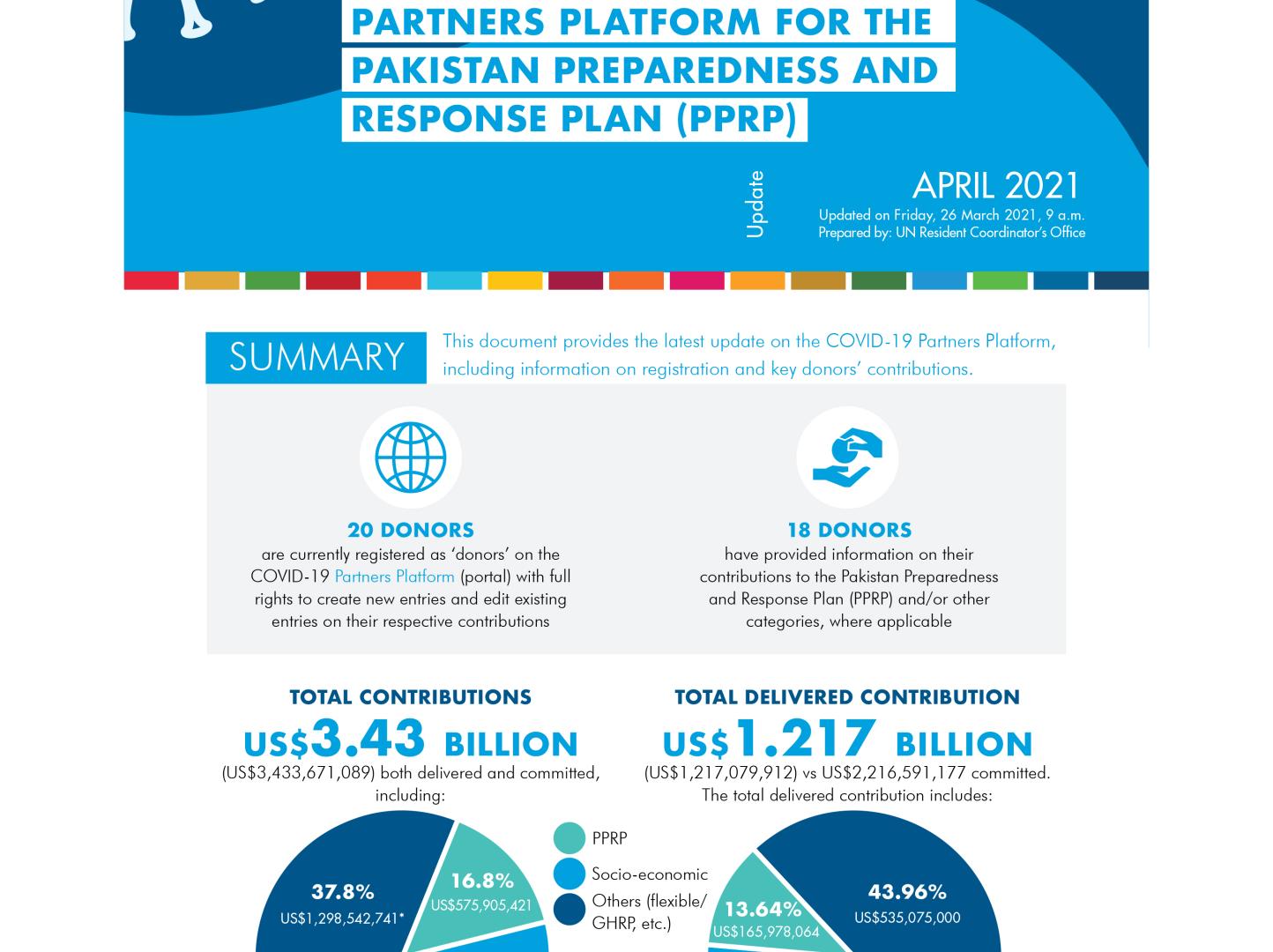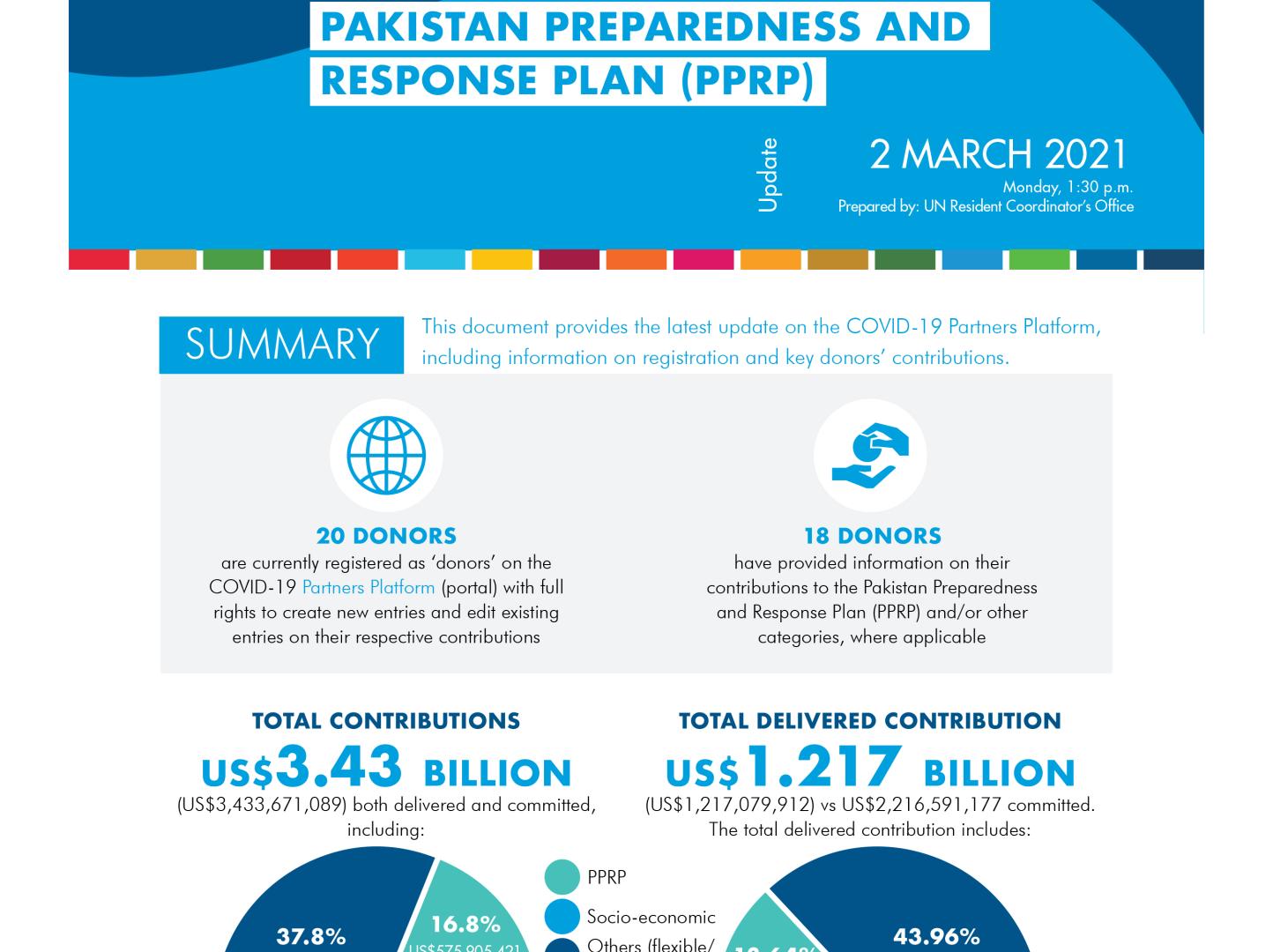Latest
The Sustainable Development Goals in Pakistan
Pakistan affirmed its commitment to the 2030 Agenda for Sustainable Development by adopting the Sustainable Development Goals (SDGs) as its own national development agenda through a unanimous National Assembly Resolution in 2016. Since then, the country has made considerable progress by mainstreaming these goals in national policies and strategies and developing an institutional framework for SDGs implementation in Pakistan. SDG support units have been established at federal and provincial levels with the planning institutions (Ministry of Planning Development and Special Initiatives and Provincial Planning and Development Departments) to guide SDGs implementation and monitoring it progress. In 2018, the Government designed and approved a National SDGs Framework that envisages a national vision to prioritize and localize SDGs. Localized provincial SDG Frameworks are being formulated. The focus of the government is on mainstreaming SDGs in planning processes, ensuring strong monitoring and reporting on SDGs, ensuring public financial allocations are aligned to SDGs and alternate financing modalities are being explored, and to benefit from use of technology to accelerate progress towards SDGs.
Publication
08 November 2022
United Nations Sustainable Development Cooperation Framework (UNSDCF) 2023-2027 for Pakistan
With this framework, the UN in Pakistan has prioritized five development outcomes to improve people’s lives in Pakistan, especially the lives of those at the greatest risk of being left behind. The UN will support Pakistan to move forward on its pathway towards sustainable development, on the understanding that:
✓ If basic social services – including health, nutrition, water, sanitation and hygiene (WASH), education and social protection – are strengthened, there will be increased equal access to sustainable quality services for all.
✓ If women, girls and transgender persons are empowered to reach their fullest potential, their human, social, economic and cultural rights will be fully protected and upheld, and they will have decision-making power over all aspects of their lives.
✓ If the health of the Indus River Basin is restored and protected, and resources are equitably and efficiently used, the Indus will sustain a thriving civilization from its sources to the sea, and Pakistan will be much better equipped to adapt to climate change and mitigate its impact.
✓ If there is sustainable and inclusive green economic growth and decent work, there will be equitable employment opportunities, enhanced productivity, a sustainable business environment and the realization of workers’ rights.
✓ If inclusive, accountable and efficient governance systems are in place, they will provide equitable service delivery, affordable and accessible justice systems, and enable people to be aware of – and obtain – their rights.
1 of 3
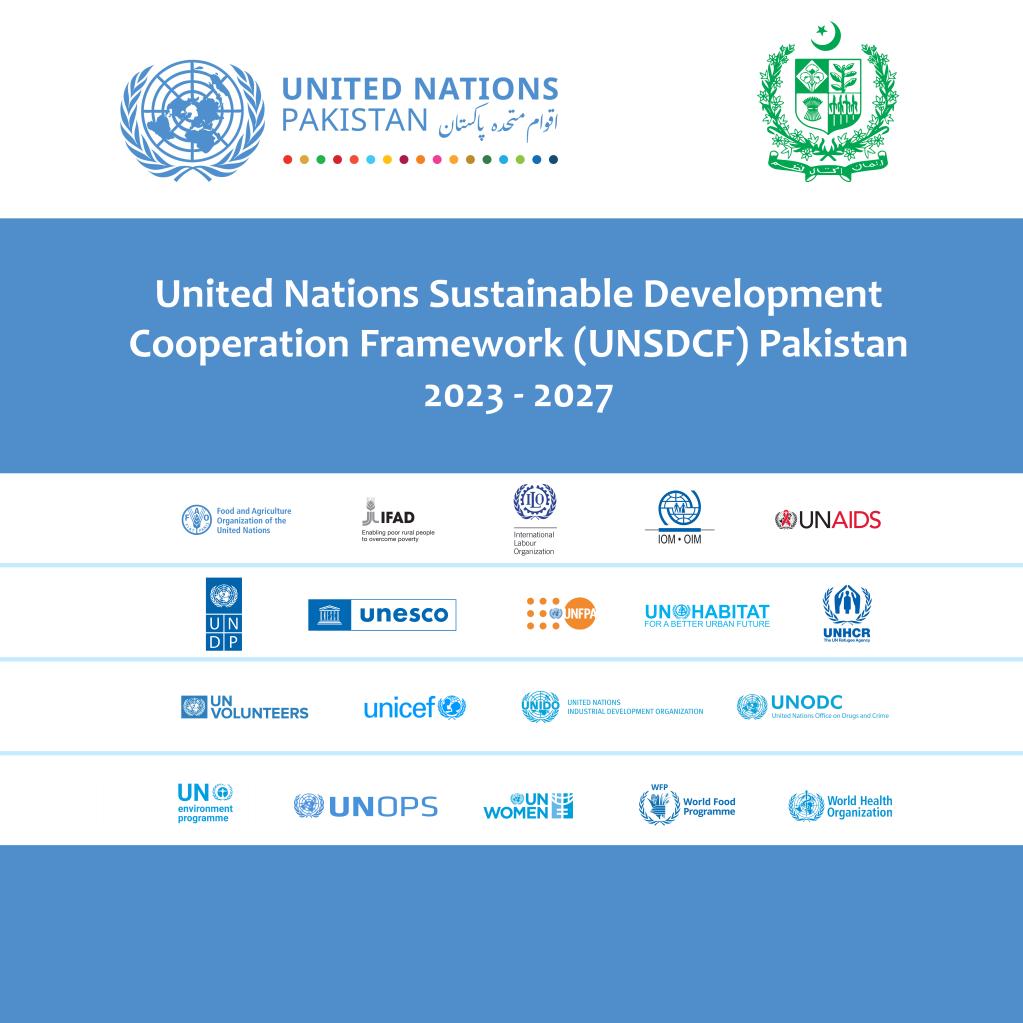
Story
18 June 2020
Pakistan: Further desert locust damage forecast in coming agricultural seasons
The Government of Pakistan’s preliminary estimate of monetary losses due to desert locusts over the two coming agricultural seasons in 2020 and 2021 may range from US$3.4 billion to $10.21 billion.
Locust damage has significantly affected many farmers already, with further significant locust damage forecast at the end of summer.
In late January, the Government of Pakistan declared the desert locust a national emergency and set up the National Action Plan for Desert Locust Control and Surveillance and a high-level National Locust Control Centre.
The Food and Agriculture Organization (FAO) is providing technical advice and procurement support to the Government for locust surveillance and control activities, including locust threat forecasts and control operation strategies.
FAO and the World Food Programme and partners, in coordination with the Government, will access needs in the worst-impacted districts, which have also experienced multiple shocks over the past 18 months, including drought, flash flooding, a cold wave and COVID-19.
The Government of Pakistan needs $372 million over the coming three years in additional funding to survey, control and recover from the locust damage.
FAO launched the Desert Locust Upsurge Global Response Plan 2020, which includes $12.5 million for Pakistan for crisis response, of which only $1.9 million has been funded.
More than 3 million people in Pakistan are facing severe acute food insecurity, with the situation particularly precarious in Balochistan.
It is estimated that approximately 34,000 households will need of emergency livelihood and food-security assistance due to crop losses. Many more people may be indirectly affected by crop losses leading to price rises in key commodities.
1 of 3

Story
16 June 2020
A Coordinated Response to Coronavirus
On Wednesday, 11 March 2020, the World Health Organization (WHO) characterized the coronavirus (COVID-19) viral disease a pandemic, but it is a pandemic that can be controlled. Coronavirus (COVID-19) is the infectious disease caused by the most recently discovered coronavirus.
Dr. Tedros Adhanom Ghebreyesus, who heads the UN agency, said, in his statement, “Let me be clear: describing this as a pandemic does not mean that countries should give up.”
The UN Secretary-General urged all countries to take a comprehensive approach tailored to their circumstances – with containment as the central pillar. COVID-19 is affecting thousands of people, impacting countries’ health systems and having widespread social and economic effects. The UN entities working on development, the United Nations Sustainable Development Group, are supporting countries in their preparedness and response plans.
This page convenes sources of information and guidance from the World Health Organization (WHO) and the United Nations (UN) regarding the current outbreak of novel coronavirus (COVID-19).
WHO is working closely with global experts, governments and partners to track the spread and to provide guidance to countries and individuals on measures to protect health and prevent the spread of this outbreak.
To stay up to date with the latest information, please visit:
United Nations Covid-19 Response: https://www.un.org/coronavirus
World Health Organization: https://www.who.int/emergencies/diseases/novel-coronavirus-2019
Latest news on the United Nations’ response: https://news.un.org/en/events/un-news-coverage-coronavirus-outbreak
WHO guidance for countries: https://www.who.int/emergencies/diseases/novel-coronavirus-2019/technical
Coronavirus (COVID-19) Situation: https://experience.arcgis.com/experience/685d0ace521648f8a5beeeee1b9125cd
1 of 3
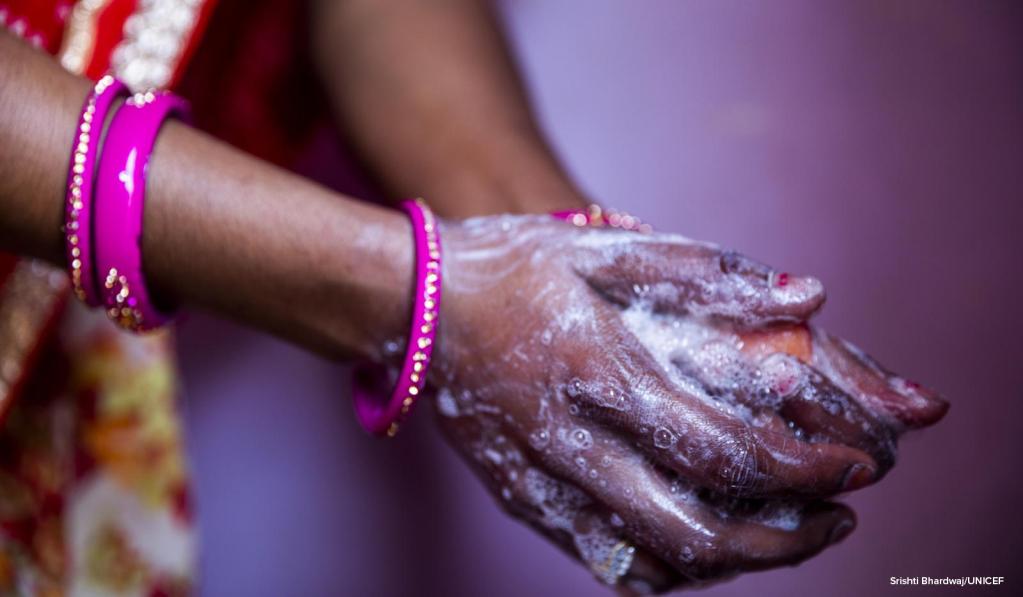
Story
25 January 2024
Pakistan's farmers feel the (solar) power
In the photo (above), a smallholder farmer from Bhagwela, Rahim Yar Khan, in Punjab province, inspects her solar tube well, a type of water pumping system that utilizes solar energy to bring up water from underground sources, such as wells or boreholes. It is an eco-friendly and cost-effective alternative to the diesel or mains electricity-powered pumps commonly used in agricultural irrigation.
With the solar-powered tube well irrigating her farmland, the farmer has cut costs and improved her crop yields. She is one of the nearly 500 women and men engaged in farming and running small enterprises in the provinces of Punjab and Sindh who UNIDO has helped apply renewable energy solutions for productive uses. The National Rural Support Programme (NRSP), a leading microfinance and development organization in Pakistan, provides loans for the procurement and installation of renewable energy solutions, and UNIDO covers the interest payments so that the loans are interest-free.
Another farmer, Kaneez Fatima, from the Sargodha district in Punjab, expressed her thanks. "I own a small piece of land, and access to water and electricity is always a problem. I received UNIDO's assistance through the NRSP - an interest-free loan to purchase a 2KW solar panel to run a tube well to irrigate my land. The installation process was extremely smooth, according to the land irrigation needs and water level."
The electricity costs for beneficiaries have drastically dipped. A post-installation impact survey conducted by the NRSP found that 80% of respondents reported savings of of up to 15,000 Pakistani rupees (around €50) a month, with the other 20% saving even more.
Small farmers and entrepreneurs have been suffering from fuel price hikes in recent times. Agriculture and small and medium-sized enterprises (SMEs) are the mainstays of Pakistan's economy, providing jobs for around two-thirds of the population.
Rashid Bajwa, CEO of the NRSP, laments the impact of the enegy crisis on the economy. "The majority of our population generates income that is barely enough to meet their needs and the situation is getting worse," says Bajwa. "We need to adapt and improvise, and alternative or green energy just might be the solution that will enable our SME sector to sustain and grow."
The farms and businesses supported by UNIDO have not only reduced costs by switching from diesel, they are also helping save the climate. With a capacity to produce 1,825 MWh of clean energy a year, the project beneficiaries will be able to avoid more than 800 metric tons of CO2 emissions annually.
Shah Jahan Mirza, Managing Director of the government agency, the Private Power and Infrastructure Board, commended UNIDO for introducing renewable energy technogology to smallholder farmers and small enterprises in Punjab and Sindh provinces. "These rural communities generally don't have funding to finance these systems. There are also doubts and misconceptions about these technologies, i.e. they are not reliable and very costly, or may not help. Providing interest-free loans is a breakthrough. UNIDO has taken a lead in this which will go a long way, as the people have now started using this technology. "
The UNIDO initiative is part of a bigger project, Sustainable Energy Initiative for Industries in Pakistan, funded by the Global Environment Facility (GEF). Collaborating with public and private partners, UNIDO has facilitated investments in energy efficiency and renewable energy in 50 industrial units. In addition, UNIDO has placed significant emphasis on capacity building, and has trained more than 625 professionals, including 30 women, in energy management systems and energy optimization.
The project has yielded significant results, implementing more than 12MW of renewable energy projects in the industrial sector, and thereby reducing over 17,000 metric tons of CO2 emissions.
Further reading: Sustainable Energy Initiative for Industries in Pakistan
WRITTEN BY: Charles Arthur - UNIDO
1 of 5
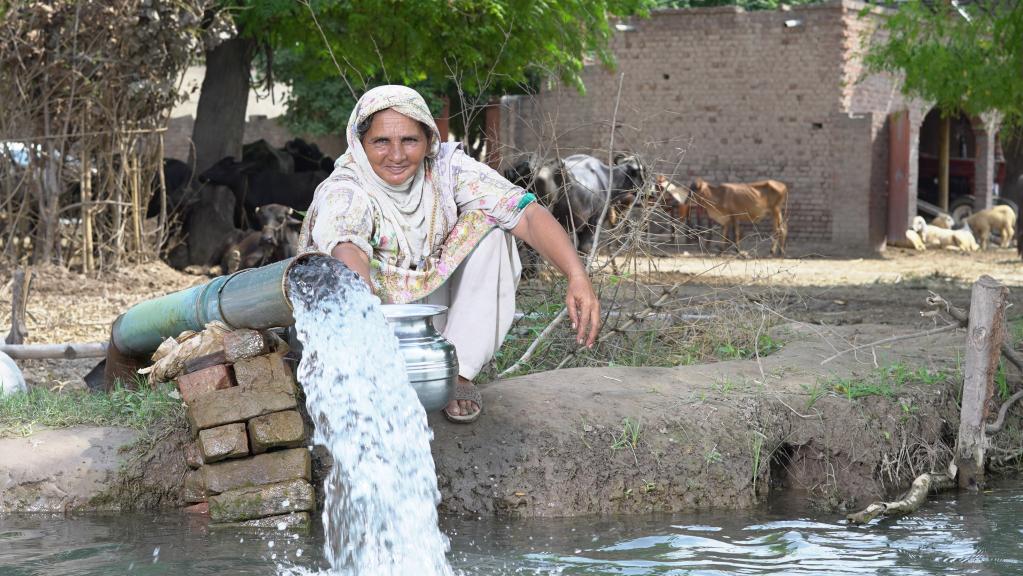
Story
27 June 2023
Pakistani woman entrepreneur goes digital
For Micro-, Small, and Medium-sized Enterprises Day 2023, we celebrate small entrepreneurs from all over the world. Small businesses account for 90% of the world's businesses, 60 to 70% of employment, and 50% of the global economy. They contribute to local and national economies and to the achievement of the Sustainable Development Goals.
Please describe your business in a few words.
My name is Shaheen Ejaz. Many years ago, I developed a skin problem. I often felt embarrassed because of the scars it was leaving on my skin. I used to research quite a bit on herbal remedies looking for a cure. That is when I decided to share my knowledge about herbal cures with other women.
My small company, MNM products, started from home here in Quetta. I started small. I began with a vision of not only creating top quality herbal skin care products but also providing opportunities for other women to make a living. I believe that man and woman, both must work to give a good standard of life to their children.
What are the challenges that you face or have faced as a small business?
Although I knew what I wanted to sell, I had no clue how to do it.
In the beginning, my sales were so little. I was lacking the right skills to sell back then. So, money was always an issue. I had to take some personal loans. Staying afloat in the early days was not easy at all.
What are your needs to improve/expand your business?
I wish to start a factory where I can continue to produce skin care products employing women to provide them with the means of making their own income. For this, I would need finance to help expand my business.
I need to re-invest my profit back into the business.
How have you found the support from ITC helpful?
My business has immensely benefitted from the e-commerce training that I and my daughter received from the European Union funded Growth for Rural Advancement and Sustainable Progress (GRASP) project in 2021.
As a result, I can independently manage issues related to online business, branding, mandatory registration requirements, promotion of products and even packaging to attract more customers.
What would you say has been your greatest success as a business so far?
My biggest success has been the increase in sales. Ever since I applied my learnings from the training to my business my sales have increased. In the past I would barely make $20 in sales. With my online business, I now make $175 in a week.
Your message to other small entrepreneurs?
My message to small entrepreneurs would be to think big even when circumstances appear dreary.
I want to say to other women like me that they should never underestimate their potential to forge ahead and achieve in life.
1 of 5
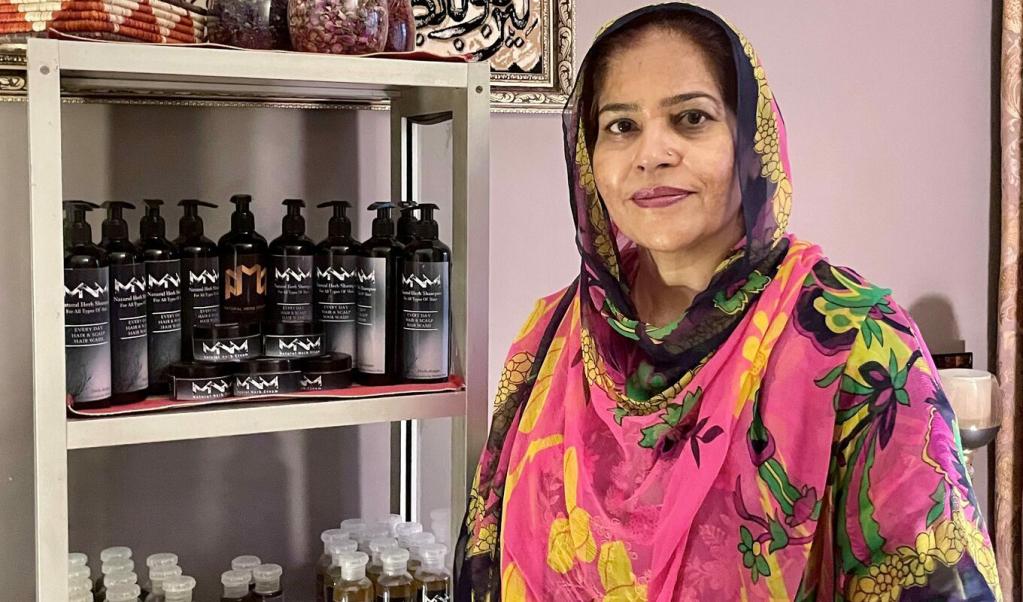
Story
26 June 2023
From Despair to Hope: Overcoming Addiction, Embracing Recovery, and Defying Stigma in Pakistan
The theme of World Drug Day 2023 is “People first: stop stigma and discrimination, strengthen prevention.” To commemorate the day, UNODC is highlighting its work on drug prevention and treatment around the world.
Pakistan, 26th June 2023 – "The magnitude of the damage caused by drugs is something I shudder to contemplate."
Laila*, a 25-year-old woman from a respectable family and a recovering drug addict at a treatment and rehabilitation center in Pakistan, stood with her back turned, gazing out the window. Her voice trembled as she shared her story.
At the tender age of 18, she married. But her husband was frequently absent, leaving her in solitude.
During her pregnancy, Laila endured mistreatment from her in-laws, prompting her to seek refuge at her parents' home. Eventually, she made the difficult decision to divorce her husband.
“The aftermath of my divorce left me engulfed in loneliness, which led me down the path of addiction,” she shared.
"It's unfathomable to grasp the state I was in before coming here,” Laila continued, referring to the treatment center. “I resorted to renting a room where I would languish in a haze of intoxication.
“Someone alerted my family to my dire circumstances, revealing my unwitting descent into drug addiction," she recounted.
"I was utterly devastated, having lost everything, particularly my financial stability. Regrettably, I even neglected my child, leaving them unattended in the room while I was under the influence."
Witnessing Laila's plight, her family sought to convince Laila that her addiction was a treatable disease. Initially hesitant, Laila gradually embraced the notion.
Supported by her family, she embarked on a three-month treatment program at a center with trainers trained by the United Nations Office on Drugs and Crime (UNODC). UNODC is building the capacity of drug treatment and prevention professionals in Pakistan on the Universal Treatment Curriculum (UTC) and Universal Prevention Curriculum, training over 100 drug treatment professionals from civil society and health, education, and law enforcement organizations.
The curriculums relate to the UNODC-World Health Organization “International Standards for the Treatment of Drug Use Disorders”, a guide which identifies major components and features of effective systems for the treatment of drug use disorders. They describe treatment modalities and interventions to match the needs of people at different stages and severities of drug use disorders.
At the center, Laila came to terms with the “extensive harm” her addiction caused. “It defies adequate description. It's inconceivable that a girl who had once led a good life found herself in such a wretched state.
“Reflecting upon the hardships endured by my family and brothers due to my drug addiction fills me with sorrow. Addiction stained my brothers' reputation, led to the dissolution of my marriage, and compelled me to leave my children," Laila lamented. "Nevertheless, I am now on the path to recovery, guided by faith and newfound hope.
"Today, as I conclude my treatment, an overwhelming sense of joy permeates my being. I have emerged stronger than ever, enriched by invaluable wisdom gained during my time here. I fervently pray that I never plunge into such destitution again."
* Name changed to protect privacy
Story: UNODC Pakistan
1 of 5
Story
17 April 2023
Tackling the “climate catastrophe of the century”: the UN Resident Coordinator System’s Support to Pakistan
New York, 13 April 2023- Member State representatives and UN Development Coordination Office (DCO) partners gathered at the United Nations (UN) headquarters to learn about the role of the reformed Resident Coordinator system in leading a comprehensive response to the floods which swept across Pakistan last summer, affecting more than 33 million people and threatening to wipe out decades of development gains.
When the climate catastrophe first struck in July 2022, the Permanent Representative of Pakistan H.E Munir Akram recalled that the Resident Coordinator was one of the first partners contacted.
“We immediately contacted our partners in the UN development system – to make a quick evaluation of the damage’s extent, and to translate that into the emergency appeal – the 911 response. It was a critical early-stage response that no other organization was equipped to provide.”
In a recorded video message, the Minister of Foreign Affairs of Pakistan H.E Bilawal Bhutto Zardari agreed that in the immediate aftermath of ‘the most devastating climate catastrophe of this century,’ the support from the Resident Coordinator proved vital, describing the RC system as a ‘one-stop shop, our go-to place to coordinate the response, streamline our efforts and ensure a smooth exchange of information.’
“The devastating rains and floods of last year have been a hydra-headed challenge, needing a humanitarian response, development action, and climate change adaptation,” UN Resident Coordinator (RC) Julien Harneis said, joining the UNHQ session online via video.
“The scale of the devastation had demanded a whole of society response led by the Government. The reforms of the UN development system gave me, as RC, and my small team the tools to bring together all relevant parts of the UN, the agencies in the country, non-resident agencies, headquarters, the General Assembly, the United Nations Framework Convention on Climate Change as well as members states and the International Financial Institution.”
RC Harneis explained how the dual humanitarian and development role enabled his team to rapidly switch to providing humanitarian assistance and support the Government to launch an $816 million Flood Response Plan to address both immediate and longer-term recovery needs, mobilizing international financing and solidarity from critical donors including Member States and International Financial Institutions.
He added that one year before the floods, the team had through a new generation of Cooperation Framework [a roadmap for sustainable development jointly agreed by the National Government and the UN team], and a nationwide consultation, already identified that the Triple Planetary Crisis [climate change, pollution and biodiversity loss] as an existential threat to the Indus Basin River system and therefore to Pakistan.
“This had to be one of the UNs five priorities. So, when the rains started the UN support saw this from the very beginning as a direct result of climate change, needing humanitarian action, reconstruction and adaptation and needing national and international coordination,” Harneis said.
Participants noted that through the Resident Coordinator’s leadership, along with his team, leveraging the added value of the UN system at the global, regional and country levels, including making the most of the Development Coordination Office/Resident Coordinator System’s timely support, Pakistan’s path towards long-term resilience planning received a significant boost in January 2023 during the launch of the ‘The 4RF: The Resilient Recovery, Rehabilitation and Reconstruction Framework’. This raised $9 billion in pledges, including from non-traditional donors.
The Permanent Representative of Pakistan to the United Nations expressed appreciation for the Resident Coordinator’s support in mobilizing international financing for these recovery and adaptation efforts. “The response that Pakistan received at the Geneva conference was an encouraging sign of international solidarity…It’s heartening that the machinery is already in place before the crisis happens.’”
RC Harneis flagged the value added of his coordination team, including the economist in the Resident Coordinator’s Office, to tightly coordinate with International Financial Institutions, and in particular the World Bank and the Asian Development Bank. This was vital, as their financing of humanitarian activity mainly through the Government was as important as all the funds going through the UN and NGOs that make up the Humanitarian Country Team.
He also highlighted the essential collaboration of the UN team on the ground. “For the reconstruction the UN Development Programme (UNDP) brilliantly fulfilled the integrator role that the reform envisaged, pulling together the UN family first for the Post Disaster Needs Assessment and then Resilient Recovery Rehabilitation and Reconstruction Framework (4RF). This brought coherence to the UNs work with our partners: the Asian Development Bank, European Union and the World Bank. “
In essence, RC Harneis stressed that the UN development reform has made effective and timely mobilization responses possible, positioning the RC and the RC Office as the one-stop shop for all UN support in the country or outside.
“A good friend in government described the RCO as the 911, available 24/7, bringing together all parts of the UN to get solutions, adding that he never knew which bits of the UN were making it happen, but it just all came together. And this is how it has to be.”
Read the full remarks of the Resident Coordinator.
Story: UNDCO
1 of 5
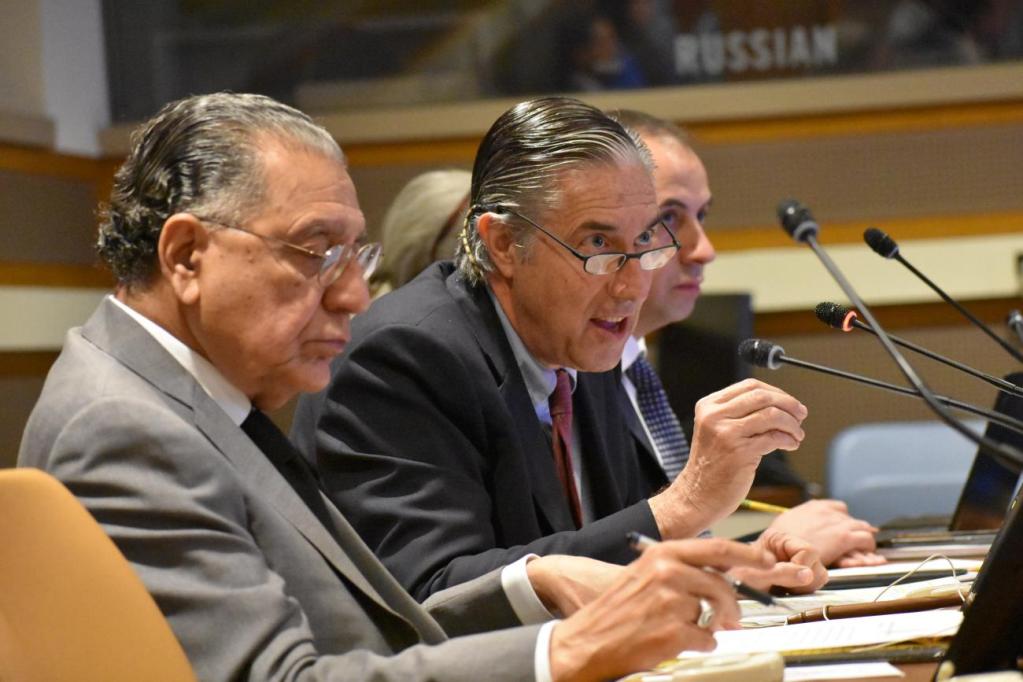
Story
06 March 2023
Breaking down barriers for female police officers
Less than two per cent of Pakistan’s entire police force is made up of women. The lack of female police officers has a significant impact on gender equality in the country – reducing the willingness of women to report crimes and limiting their access to justice.
“Sometimes we see women who are not comfortable discussing their cases with the male officers,” explains Asma Baloch, a trainee at the Shahdadpur Police Training College in Sindh Province. “Most of the time, they think they won’t get justice.”
While cultural and social norms are the main reasons behind the shortage of female recruits, inadequate facilities at training colleges can also be a hindrance when it comes to attracting more women to the field.
“The biggest problem we had was the washrooms. On the first day we arrived, there was no hot water and the toilets were very dirty,” says Naeema Siddiqui, a trainee patrol officer at the National Highways and Motorway Police Training College in Sheikhupura, Pakistan.
Naeema is one of around 100 young women currently enrolled at the training college, which receives recruits from all over the country, who live on campus in shared dormitories. According to Deputy General Inspector Mehboob Aslam, the commandant of the college, the housing for women had not been updated since it was opened in 1992 and was unfit for purpose.
Almost 1,000 kilometres away at the Shahdadpur Police Training College, the story is all too familiar. According to Asma, the lack of dedicated facilities for women had led to overcrowding. “We faced a lot of difficulties. It would get extremely hot and the bathrooms were unclean,” she says.
To help overcome some of these challenges, UNOPS partnered with the United States Department of State’s Bureau of International Narcotics and Law Enforcement Affairs to build new housing facilities for policewomen as part of country-wide efforts to remove the barriers discouraging women from joining the force.
DESIGNING INFRASTRUCTURE FOR WOMEN
The National Highways and Motorway Police Training College is the first of three colleges in the provinces of Punjab and Sindh to receive new dedicated living facilities for women.
UNOPS Project Manager Nauman Amin says women played an important role in the design process and were encouraged to share ideas on how their needs could be best addressed. “We brought the concept design for the facility here and discussed it with the female police trainees. They are the ones who will eventually live in this building so their input was critical.”
After consulting with the recruits, a family daycare area, study and laundry rooms were added to the design plans. For Naeema, a mother of two who has aspirations of becoming an inspector general, the new facilities will provide her with a child-friendly space where she can host her family when they visit, enabling her to better balance her role as a mother with her training. “Being a mother, the thing I like most [about the new dormitory] is the kitchen and children’s play area,” says Naeema. “Honestly, it just felt like home.” The design for the new facility also incorporated environmental considerations to ensure the building is equipped to deal with extremely hot temperatures common in the region. It is also resilient to earthquakes, something this province is prone to. Story: UNOPS Pakistan
After consulting with the recruits, a family daycare area, study and laundry rooms were added to the design plans. For Naeema, a mother of two who has aspirations of becoming an inspector general, the new facilities will provide her with a child-friendly space where she can host her family when they visit, enabling her to better balance her role as a mother with her training. “Being a mother, the thing I like most [about the new dormitory] is the kitchen and children’s play area,” says Naeema. “Honestly, it just felt like home.” The design for the new facility also incorporated environmental considerations to ensure the building is equipped to deal with extremely hot temperatures common in the region. It is also resilient to earthquakes, something this province is prone to. Story: UNOPS Pakistan
1 of 5
Press Release
26 April 2024
Media Update: United Nations Pakistan, 25 April 2024
UNODCPRESS RELEASEThe U.S. Embassy funds an awareness campaign on gender based violence in Balochistan25 April 2024, Quetta - In a collaborative effort to combat the pervasive issue of gender-based violence (GBV), Balochistan Police has been implementing a pioneering awareness and advocacy campaign. The initiative is funded by the U.S. Embassy’s Office of International Narcotics and Law Enforcement (INL) and implemented with the technical support of the United Nations Office on Drugs and Crime (UNODC).As part of awareness raising activities, Balochistan Police in conjunction with the U.S. Embassy’s Office of International Narcotics and Law Enforcement (INL) and UNODC organized a flagship seminar on Wednesday, 24th of April 2024 at Sardar Bahadur Khan Women's University in Quetta that successfully concluded the campaign. The seminar brought together experts from law enforcement, academia, and civil society to speak to a large gathering of young and enthusiastic female students with the purpose to inspire them to champion social change to combat gender-based violence in Balochistan.The event was presided over by the Minister for Education, Government of Balochistan, Ms. Raheela Hameed Durani who emphasized the importance of proactive measures to combat gender-based violence, highlighting the need for universities to play a crucial role in empowering young women. Other key stakeholders included Deputy Inspector General of Police Balochistan, Mr. Qamar-ul-Hassan, Vice Chancellor SBK, Prof. Dr. Sajida Noreen, Chairperson Provincial Commission on Status of Women, Balochistan, Ms. Fozia Shaheen, and SP, Quetta Police and In-Charge Women and Juvenile Faciliation Centre, Ms. Pari Gul Tareen.The main focus was on empowering youth, particularly adolescent girls, by sensitizing them to identify and confront gender stereotypes to address causes of gender-based violence in their daily lives, and motivate them to pursue careers as women police officers in Balochistan. Partnering with the Sardar Bahadur Khan Women’s University and Government Girls Postgraduate College in Quetta, Balochistan Police and UNODC had also conducted two interactive awareness sessions on March 27 and 28, 2024, respectively. These sessions successfully brought together accomplished women police officers, psychologists, academics, and gender experts to engage and encourage female students to come forward and support GBV survivors through empathy and respect. The objective was to empower young girls through knowledge of cultural and structural prejudices to address the causes of GBV. Dissemination through social media and printed materials further helped to amplify key messages among wider audience.The campaign also highlighted the importance of immediate assistance for survivors of gender-based violence and the services available at the Women and Juvenile Facilitation Centre (WJFC) in Quetta. Ms. Pari Gul Tareen, SP, Quetta, said, “Gender-based violence thrives in silence and ignorance. Our aim is to create awareness and a supportive environment for GBV survivors to ensure reporting of GBV to relevant authorities and the delivery of necessary assistance.”UNODC reassures its continued commitment towards preventing gender-based violence within communities through awareness raising, establishing reporting mechanisms especially for women and increasing the capacity of first responders. Nonetheless, women’s rights and freedoms are essential to building strong, resilient societies which can only be achieved through a whole-of-society approach. This initiative represents a significant step towards fostering a culture of understanding, respect and empathy towards addressing the issue of gender-based violence in Balochistan
For further information or media enquiries, please contact, Ms. Rizwana Rahool, Communications Officer, Contact: 0301 8564255, Email: rizwana.rahool@unodc.org
***پریس ریلیزامریکی سفارتخانے کے مالی تعاون سے بلوچستان میں صنفی تشدد پر آگاہی مہمکوئٹہ (24 اپریل 2024): صنفی تشدد کے خاتمے کی مشترکہ کوششوں کے تحت بلوچستان پولیس صوبے میں پہلی بار ایک آگاہی مہم چلا رہی ہے۔ امریکی سفارتخانے کے انٹرنیشنل نارکوٹکس اینڈ لاء انفورسمنٹ (آئی این ایل) نے اس مہم کے لئے مالی تعاون کیا ہے جبکہ اقوام متحدہ دفتر برائے انسداد منشیات و جرائم (یو این او ڈی سی) اس سلسلے میں تکنیکی معاونت فراہم کر رہا ہے۔آگاہی پھیلانے کی سرگرمیوں کے تحت بلوچستان پولیس نے امریکی سفارتخانے کے انٹرنیشنل نارکوٹکس اینڈ لاء انفورسمنٹ (آئی این ایل) اور یو این او ڈی سی کے اشتراک سے کوئٹہ کی سردار بہادر خان ویمنز یونیورسٹی میں 24 اپریل 2024 کو ایک مرکزی سیمینار کا اہتمام کیا۔ سیمینار میں قانون نافذ کرنے والے اداروں، شعبہ تدریس اور سول سوسائٹی سے تعلق رکھنے والے ماہرین نے نوجوان اور پرعزم طالبات کے ایک بڑے اجتماع سے خطاب کیا اور انہیں بلوچستان میں صنفی تشدد کے خاتمے کی تحریک کو آگے بڑھانے اور معاشرے میں تبدیلی لانے کی کوششوں کا حصہ بننے پر مائل کیا۔تقریب کا انعقاد حکومت بلوچستان کی وزیر تعلیم راحیلہ حمید درانی نے کیا اور انہوں نے صنفی بنیاد پر تشدد سے نمٹنے کے لیے فعال اقدامات کی اہمیت پر زور دیا، نوجوان خواتین کو بااختیار بنانے میں یونیورسٹیوں کے اہم کردار ادا کرنے کی ضرورت کو اجاگر کیا۔ دیگر اسٹیک ہولڈر جس میں بلوچستان پولیس کے ڈپٹی انسپکٹر جنرل مسٹر قمر الحسن، وائس چانسلر سردار بہادر خان وویمز یونیورسٹی پروفیسر ڈاکٹر ساجدہ نورین، چیئرپرسن صوبائی کمیشن برائے خواتین میڈم فوزیہ شاہین اور سپریڈنٹ پولیس کوئٹہ اور انچارج برائے خواتین و بچوں کی سہولت کا مرکز میڈیم پری گل ترین بھی شامل تھیں۔سردار بہادر خان ویمنز یونیورسٹی اور کوئٹہ کے گورنمنٹ گرلز پوسٹ گریجویٹ کالج کے اشتراک سے بلوچستان پولیس اور یو این او ڈی سی بالترتیب 27 اور 28 مارچ 2024 کو دو آگاہی سیشنز کا انعقاد بھی کر چکے ہیں۔ ان سیشنز میں پولیس کی کامیاب خواتین افسران، ماہرین نفسیات، تدریسی ماہرین اور صنفی ماہرین نے بڑھ چڑھ کر حصہ لیا اور نوجوان طالبات کی حوصلہ افزائی کی کہ وہ صنفی تشدد کا مقابلہ کرنے والی خواتین کے جذبات کو سمجھتے ہوئے ان کا حوصلہ بڑھانے کے لئے آگے آئیں۔ اصل مقصد ان طالبات کو اس بات پر مائل کرنا تھا کہ وہ ثقافت اور معاشرے میں پائے جانے والے تعصبات کا علم حاصل کریں اور صنفی تشدد کے اسباب پر قابو پانے کے لئے اپنا کردار ادا کریں۔ سوشل میڈیا اور طبع شدہ معلوماتی مواد کے ذریعے ان پیغامات کو شہریوں کی بڑی تعداد تک پہنچانے میں مزید مدد ملی۔اس مہم کے ذریعے صنفی تشدد کا مقابلہ کرنے والی خواتین کو فوری امداد کی فراہمی کی اہمیت کا اجاگر کیا جا رہا ہے اور کوئٹہ میں بنائے گئے خواتین اور بچوں کے سہولت مرکز (ڈبلیو جے ایف سی) میں دستیاب خدمات کے بارے میں آگاہی پیدا کی جا رہی ہے۔ ایس پی کوئٹہ محترمہ پری گل ترین نے اپنے خیالات کا اظہار کرتے ہوئے کہا کہ خاموشی اور لاعلمی صنفی تشدد میں اضافے کا باعث بنتے ہیں۔ ہمارا مقصد آگاہی پھیلانا اور صنفی تشدد کا مقابلہ کرنے والی خواتین کے لئے ایسا سازگار ماحول پیدا کرنا ہے جس میں وہ صنفی تشدد کی اطلاع متعلقہ حکام کو دیں اور انہیں ضروری معاونت فراہم کی جا سکے۔ یو این او ڈی سی معاشرے میں صنفی تشدد کی روک تھام کے سلسلے میں بلوچستان پولیس کے ساتھ ہے اور اس سلسلے میں آگاہی بڑھانے، بالخصوص خواتین کے لئے اطلاع دینے کے نظام تشکیل دینے اور فرسٹ رسپانڈرز کی استعداد بڑھانے کی سرگرمیوں میں اپنا کردار ادا کر رہا ہے۔ خواتین کے حقوق اور آزادی معاشروں کی تعمیر کے لیے بہت ضروری ہے ۔ جو صرف پورے معاشرے کے نقطہ نظر سے ہی حاصل کیا جا سکتا ہے۔
مزید معلومات یا میڈیا کے استفسارات کے لئے رابطہ: محترمہ رضوانہ راہول، کمیونیکیشنز آفیسر، فون: 0301 8564255، ای میل:rizwana.rahool@un.org
*********
For further information or media enquiries, please contact, Ms. Rizwana Rahool, Communications Officer, Contact: 0301 8564255, Email: rizwana.rahool@unodc.org
***پریس ریلیزامریکی سفارتخانے کے مالی تعاون سے بلوچستان میں صنفی تشدد پر آگاہی مہمکوئٹہ (24 اپریل 2024): صنفی تشدد کے خاتمے کی مشترکہ کوششوں کے تحت بلوچستان پولیس صوبے میں پہلی بار ایک آگاہی مہم چلا رہی ہے۔ امریکی سفارتخانے کے انٹرنیشنل نارکوٹکس اینڈ لاء انفورسمنٹ (آئی این ایل) نے اس مہم کے لئے مالی تعاون کیا ہے جبکہ اقوام متحدہ دفتر برائے انسداد منشیات و جرائم (یو این او ڈی سی) اس سلسلے میں تکنیکی معاونت فراہم کر رہا ہے۔آگاہی پھیلانے کی سرگرمیوں کے تحت بلوچستان پولیس نے امریکی سفارتخانے کے انٹرنیشنل نارکوٹکس اینڈ لاء انفورسمنٹ (آئی این ایل) اور یو این او ڈی سی کے اشتراک سے کوئٹہ کی سردار بہادر خان ویمنز یونیورسٹی میں 24 اپریل 2024 کو ایک مرکزی سیمینار کا اہتمام کیا۔ سیمینار میں قانون نافذ کرنے والے اداروں، شعبہ تدریس اور سول سوسائٹی سے تعلق رکھنے والے ماہرین نے نوجوان اور پرعزم طالبات کے ایک بڑے اجتماع سے خطاب کیا اور انہیں بلوچستان میں صنفی تشدد کے خاتمے کی تحریک کو آگے بڑھانے اور معاشرے میں تبدیلی لانے کی کوششوں کا حصہ بننے پر مائل کیا۔تقریب کا انعقاد حکومت بلوچستان کی وزیر تعلیم راحیلہ حمید درانی نے کیا اور انہوں نے صنفی بنیاد پر تشدد سے نمٹنے کے لیے فعال اقدامات کی اہمیت پر زور دیا، نوجوان خواتین کو بااختیار بنانے میں یونیورسٹیوں کے اہم کردار ادا کرنے کی ضرورت کو اجاگر کیا۔ دیگر اسٹیک ہولڈر جس میں بلوچستان پولیس کے ڈپٹی انسپکٹر جنرل مسٹر قمر الحسن، وائس چانسلر سردار بہادر خان وویمز یونیورسٹی پروفیسر ڈاکٹر ساجدہ نورین، چیئرپرسن صوبائی کمیشن برائے خواتین میڈم فوزیہ شاہین اور سپریڈنٹ پولیس کوئٹہ اور انچارج برائے خواتین و بچوں کی سہولت کا مرکز میڈیم پری گل ترین بھی شامل تھیں۔سردار بہادر خان ویمنز یونیورسٹی اور کوئٹہ کے گورنمنٹ گرلز پوسٹ گریجویٹ کالج کے اشتراک سے بلوچستان پولیس اور یو این او ڈی سی بالترتیب 27 اور 28 مارچ 2024 کو دو آگاہی سیشنز کا انعقاد بھی کر چکے ہیں۔ ان سیشنز میں پولیس کی کامیاب خواتین افسران، ماہرین نفسیات، تدریسی ماہرین اور صنفی ماہرین نے بڑھ چڑھ کر حصہ لیا اور نوجوان طالبات کی حوصلہ افزائی کی کہ وہ صنفی تشدد کا مقابلہ کرنے والی خواتین کے جذبات کو سمجھتے ہوئے ان کا حوصلہ بڑھانے کے لئے آگے آئیں۔ اصل مقصد ان طالبات کو اس بات پر مائل کرنا تھا کہ وہ ثقافت اور معاشرے میں پائے جانے والے تعصبات کا علم حاصل کریں اور صنفی تشدد کے اسباب پر قابو پانے کے لئے اپنا کردار ادا کریں۔ سوشل میڈیا اور طبع شدہ معلوماتی مواد کے ذریعے ان پیغامات کو شہریوں کی بڑی تعداد تک پہنچانے میں مزید مدد ملی۔اس مہم کے ذریعے صنفی تشدد کا مقابلہ کرنے والی خواتین کو فوری امداد کی فراہمی کی اہمیت کا اجاگر کیا جا رہا ہے اور کوئٹہ میں بنائے گئے خواتین اور بچوں کے سہولت مرکز (ڈبلیو جے ایف سی) میں دستیاب خدمات کے بارے میں آگاہی پیدا کی جا رہی ہے۔ ایس پی کوئٹہ محترمہ پری گل ترین نے اپنے خیالات کا اظہار کرتے ہوئے کہا کہ خاموشی اور لاعلمی صنفی تشدد میں اضافے کا باعث بنتے ہیں۔ ہمارا مقصد آگاہی پھیلانا اور صنفی تشدد کا مقابلہ کرنے والی خواتین کے لئے ایسا سازگار ماحول پیدا کرنا ہے جس میں وہ صنفی تشدد کی اطلاع متعلقہ حکام کو دیں اور انہیں ضروری معاونت فراہم کی جا سکے۔ یو این او ڈی سی معاشرے میں صنفی تشدد کی روک تھام کے سلسلے میں بلوچستان پولیس کے ساتھ ہے اور اس سلسلے میں آگاہی بڑھانے، بالخصوص خواتین کے لئے اطلاع دینے کے نظام تشکیل دینے اور فرسٹ رسپانڈرز کی استعداد بڑھانے کی سرگرمیوں میں اپنا کردار ادا کر رہا ہے۔ خواتین کے حقوق اور آزادی معاشروں کی تعمیر کے لیے بہت ضروری ہے ۔ جو صرف پورے معاشرے کے نقطہ نظر سے ہی حاصل کیا جا سکتا ہے۔
مزید معلومات یا میڈیا کے استفسارات کے لئے رابطہ: محترمہ رضوانہ راہول، کمیونیکیشنز آفیسر، فون: 0301 8564255، ای میل:rizwana.rahool@un.org
*********
1 of 5
Press Release
23 April 2024
Media Update: United Nations Pakistan, 22 April 2024
UNICEFPRESS RELEASE UNICEF calls for urgent action to save Pakistan’s children on the frontlines of climate changeOn Earth Day, Statement by Abdullah Fadil, UNICEF Representative in Pakistan, on the damaging impact of climate change and pollution on childrenISLAMABAD, 22 April 2024 – “Torrential and unseasonal rains are currently sweeping through Pakistan, once again putting children’s lives in danger.“It is a reminder of the devastating tragedy in 2022, when 500 children lost their lives as 10 years’ worth of rains were dumped on villages in southern Sindh. I saw firsthand how children were malnourished and the little they had swept away, including their schools and their hopes and futures. Despite significant aid efforts, 9.6 million children were still in need of humanitarian assistance in flood affected areas by December 2023.“The disastrous floods are one example of how climate change and pollution are impacting children’s health in Pakistan. Record-breaking temperatures put all children in Pakistan at risk of heat stress as they cannot remove excess heat from their bodies. Similarly, children are also more likely to suffer from air pollution than adults, leading to life-threatening respiratory diseases. About 12 per cent of deaths in Pakistani children under five are due to air pollution.“Year on year, children in Pakistan are caught in a vicious cycle of drought and floods. From the moment of conception until they grow into adulthood, the health and development of children’s brains, lungs, and immune systems, are affected by their environment. Children in Pakistan are at “extremely high risk” of the impacts of the climate crisis. However, Pakistan shoulders the twin burden of adapting to climate change while reducing global emissions.“Despite what is at stake, we are failing to protect our environment. The mighty Indus River is a lifeline for Pakistan’s people and children but is now at risk due to climate change, neglect, misuse, pollution, over exploitation and dumping of toxic waste.“This Earth Day, we must redouble our efforts to ensure no child in Pakistan suffers the consequences of climate change, pollution and related disasters again.“Here’s how: We must cut greenhouse gas emissions from coal and fossil fuels to protect the planet.“I am a polluter - every time I eat or travel, I add to global emissions. But blame does not fall equally. According to Oxfam, the world’s richest 10 per cent is responsible for half of all global greenhouse gas emissions. That, among many other things, is heating the planet. Governments must take collective responsibility in line with the pollution they cause. We can also do more to save energy and use other sources like solar. “We must enact policies and legislation to address climate change and its disproportionate impact on children and women. Protecting children’s health from toxic metals, chemicals, hazardous waste and air pollution is paramount.“We must invest in children. That means more money to address stunting and malnutrition, build schools, health centres, toilets and hand pumps that can withstand floods and cyclones. However, only 2.4 per cent from climate funds support projects for children. We urge world leaders to work towards making COP30 a children’s COP to secure the 1.5-degree temperature limit. “If we fail to do so, more children will become vulnerable to disease, hunger and death. To ensure every child in Pakistan grows up in a safe and clean world, radical action is needed today. We owe it to the next generation, who are the custodians of our future.”##### About UNICEF
UNICEF works in some of the world's toughest places, to reach the world's most disadvantaged children. Across more than 190 countries and territories, we work for every child, everywhere, to build a better world for everyone. For more information about UNICEF’s work on climate change in Pakistan, visit: https://www.unicef.org/pakistan/For more information, please contact:Abdul Sami Malik, UNICEF Pakistan, +92-300-855-6654, asmalik@unicef.orgSabrina Sidhu, UNICEF South Asia, +91 9384030106, ssidhu@unicef.orgJoe English, UNICEF New York, +19178930692 / jenglish@unicef.org یونیسف کا موسمیاتی تبدیلی کے شدید خطرات سے دوچار پاکستانی بچوں کےتحفظ کیلئے فوری اقدامات کا مطالبہ’یومِ ارض‘ کے موقع پر پاکستان میں یونیسف کے سربراہ، عبداللہ فاضل کا بچوں پر موسمیاتی تبدیلی اور آلودگی کے مضر اثرات کے حوالے سے بیاناسلام آباد۔ 22 اپریل 2024: "پاکستان میں موسلا دھار اور بے موسم بارشوں کا سلسلہ جاری ہے، جس سے ایک بار پھر بچوں کی زندگیوں کو خطرات لاحق ہوگئے ہیں۔’’ان بارشوں سے 2022 کے تباہ کن سانحے کی یاد تازہ ہوتی ہے، جب جنوبی سندھ کے دیہاتوں میں 10 سال کی بارشوں کے برابر بارشیں ایک ساتھ برسنے سے 500 بچے اپنی جانوں سے ہاتھ دھو بیٹھے تھے۔ اس دوران میں نے خود دیکھا کہ بچے غذائی قلت کا شکار تھے اور بچوں کے اسکولوں، ان کی اُمنگوں اور مستقبل سمیت سب کچھ سیلاب میں بہہ گیا تھا۔ موثر امدادی کوششوں کے باوجود دسمبر 2023 تک سیلاب سے متاثرہ علاقوں میں 96 لاکھ بچے اب بھی انسانی امداد کے منتظر تھے۔"تباہ کن سیلاب اس بات کی ایک مثال ہے کہ موسمیاتی تبدیلی اور آلودگی پاکستان میں بچوں کی صحت کو کس طرح متاثر کر رہی ہے۔ اس کے علاوہ ریکارڈ درجہ حرارت سے پاکستان میں تمام بچوں کو شدید گرمی کے خطرے کا بھی سامنا ہے، کیونکہ ان کے پاس اس سے نمٹنے کے لئے وسائل نہیں ہیں۔ اسی طرح بڑوں کے مقابلے میں بچوں کے فضائی آلودگی کا شکار ہونے کے امکانات زیادہ ہوتے ہیں۔ فضائی آلودگی سے سانس کی جان لیوا بیماریاں جنم لیتی ہیں۔ پاکستان میں پانچ سال سے کم عمر کے تقریباً 12 فیصد بچوں کی اموات فضائی آلودگی کی وجہ سے ہوتی ہیں۔"سال بہ سال پاکستان میں بچے خشک سالی اور سیلاب کے جان لیوا چکر میں پھنسے رہتے ہیں۔ ماں کے پیٹ سے لے کر بلوغت تک بچوں کے دماغ، پھیپھڑوں اور مدافعتی نظام کی صحت اور نشوونما ان کے ماحول سے متاثر ہوتی ہے۔ پاکستان میں بچوں کو موسمیاتی بحران کے اثرات سے’’شدید ترین خطرے‘‘ کا سامنا ہے۔ تاہم، پاکستان کے کندھوں پر عالمی سطح پر مضر گیسوں کے اخراج میں کمی لانے کے ساتھ ساتھ موسمیاتی تبدیلی کے خلاف اپنا تحفظ کرنے کا دوہرا بوجھ بھی ہے۔"اتنا کچھ داؤ پر لگا ہوا ہے، اس کے باوجود ہم اپنے ماحول کی حفاظت کرنے میں ناکام ہو رہے ہیں۔ دریائے سندھ پاکستان کے عوام اور بچوں کے لیے زندگی کے وسیلے کی حیثیت رکھتا ہے، لیکن وہ بھی موسمیاتی تبدیلی، غفلت، گنجائش سے زائد استعمال، آلودگی، اور زہریلا فضلہ پھینکنے کی وجہ سے خطرے سے دوچار ہے۔"اس یومِ ارض پر ہمیں اس بات کو یقینی بنانے کے لیے اپنی کوششیں دگنی کرنی ہونگی کہ پاکستان میں کوئی بچہ دوبارہ موسمیاتی تبدیلی، آلودگی اور متعلقہ آفات کا شکار نہ ہو۔ اس کے لیے ہمیں زمین کی حفاظت کے لئے کوئلے اور فوسل فیولز کے استعمال سے پیدا ہونے والی گرین ہاؤس گیسوں کے اخراج کو کم کرنا ہوگا۔’’میں آلودگی پھیلاتا ہوں - ہر بار جب میں سفر کرتا ہوں، تو میں گرین گیسوں کے اخراج میں اضافے کا باعث بنتا ہوں،۔لیکن اس جرم میں سب برابر کے شریک نہیں ہیں۔ آکسفیم کے مطابق دنیا کے امیر ترین 10 فیصد افراد دنیا بھر میں گرین ہاؤس گیسوں کے کل اخراج میں سے نصف کے ذمہ دار ہیں۔ بہت سی دوسری چیزوں کے علاوہ، یہ گیسیں زمین کے درجہ حرارت میں اضافے کا موجب بن رہی ہیں۔ حکومتوں کو چاہیے کہ اس آلودگی میں کمی لانے کے لیے اجتماعی ذمہ داری لیں۔ ہم توانائی کی بچت اور شمسی توانائی جیسے دیگر ذرائع کے استعمال سے ان گیسوں کے اخراج میں کمی لاسکتے ہیں۔" ہمیں موسمیاتی تبدیلی اور بچوں اور خواتین پر اس کے غیر متناسب اثرات سے نمٹنے کے لئے پالیسیاں اور قانون سازی کرنی ہوگی۔ بچوں کی صحت کو زہریلی دھاتوں، کیمیکلز، خطرناک فضلے اور فضائی آلودگی سے بچانا انتہائی ضروری ہے۔"ہمیں بچوں پر سرمایہ کاری کرنی چاہیے۔ اس کا مطلب یہ ہے کہ بچوں میں غذائی کمی اور جسمانی کمزوری سے نمٹنے کے لیے زائد رقم مختص کی جائے، اسکول، صحت کے مراکز، بیت الخلا اور ہینڈ پمپ تعمیر کیے جائیں جو سیلاب اور سمندری طوفانوں کا مقابلہ کر سکیں۔ تاہم، موسمیاتی تبدیلی سے نمٹنے کے لیے مختص فنڈز میں سے بچوں کی بہتری کے منصوبوں پر صرف 2.4 فیصد خرچ کیا جاتا ہے۔ ہم عالمی رہنماؤں پر زور دیتے ہیں کہ وہ COP30 کو بچوں کا COP بنانے کی سمت میں کام کریں تاکہ 1.5 ڈگری درجہ حرارت کی حد برقرار رکھی جا سکے۔"اگر ہم اس میں ناکام رہے تو مزید بچے بیماری، بھوک اور اموات کا شکار ہو جائیں گے۔ پاکستان کے ہر بچے کی پرورش ایک محفوظ اور صاف ستھری دنیا میں یقینی بنانے کے لیے ہمیں آج انقلابی اقدامات کی ضرورت ہے۔ یہ ہم پر اگلی نسل کا قرض ہے، جو ہمارے مستقبل کی نگہبان ہے۔ ختم شد۔ ILOPRESS RELEASEILO launches project to advance chemical management in Pakistan’s textile sectorThe project, funded by the United Nations Environment Programme and Global Environment Facility, aims to mitigate the use and release of hazardous chemicals in Pakistan's textile sector.KARACHI, Pakistan (ILO News) – Today, the International Labour Organization (ILO) launched a new project on “Environmental Sustainability through Chemical Management” (ESCM) that will collaborate with 10 Textile Mills in Karachi to pilot a capacity building programme for sound chemical management, focused on reducing occupational hazards from chemicals of concern and Persisent Organic Pollutants (POPs), while ensuring environmental sustainability.The ESCM project aligns with the ILO's commitment to a just transition with safer, more equitable, and decent workplaces within the textile industry, while also adopting international labour standards, particularly focusing on Occupational Safety and Health. Through collaboration with national partners, the initiative seeks to raise awareness about the ILO Chemical Convention 1990 (No.170) and advocate for policy reforms to ensure compliance with international labor standards.The launch was attended by multiple stakeholders including representatives from the Federal Ministry of Overseas Pakistanis and Human Resource Development, the Ministry of Climate Change and Environment Coordination, the Living Indus Initiative, other provincial government departments, employers’ and workers’ organizations. The event was followed by a stakeholder consultation where the participants deliberated on strategies to amplify the project's impact and foster industry-wide adherence to global best practices in chemical management. The project is currently active in Bangladesh, Vietnam, Indonesia and Pakistan.Geir Tonstol, Country Director for ILO Pakistan said “the project on chemical waste management not only complements ILO's factory improvement programs dedicated to enhancing compliance, notably under the GSP Plus framework, but also strengthens the holistic approach of ILO towards productivity, compliance, human resource development, and just transitions for climate change.”He added that this comprehensive initiative underscores ILO's commitment to fostering sustainable practices in supply chains while advocating for climate resilience and social justice.Maria Beatriz Mello da Cunha, ILO Specialist on the Textile, Leather, Footwear and Garments Sector, emphasized that “it is essential that through this pilot project we design a capacity building programme on the ILO Code of Practice for Safety and Health in the Textiles Industries, so that Occupaitonal Safety and Health deficits from chemicals and hazardous materials can be reduced.”With support from the Global Environmental Facility (GEF) and the United Nations Environmental Programme (UNEP), and in coordination with the Ministry of Climate Change and Environmental Coordination, the project will engage ILO’s tripartite constituents, project partners, and stakeholders in an active process of both policy and technical interventions in the sector. The project will also serve as a platform to develop synergies and foster knowledge-sharing on workplace safety.Background:Globally, the impact of hazardous substances affects nearly one billion workers, resulting in devastating consequences for not only the individuals themselves and their families but also leading to a significant negative impact on the economy's performance. This warrants for transformative action in chemical waste management practices. The project aims to address these issues by collaborating with textile mills demonstrating successful models that can then be replicated and scaled in other sectors.For further information please contact:Muhammad NumanCommunication OfficerEmail: numan@ilo.org, Mobile: +92 303 5000041
UNICEF works in some of the world's toughest places, to reach the world's most disadvantaged children. Across more than 190 countries and territories, we work for every child, everywhere, to build a better world for everyone. For more information about UNICEF’s work on climate change in Pakistan, visit: https://www.unicef.org/pakistan/For more information, please contact:Abdul Sami Malik, UNICEF Pakistan, +92-300-855-6654, asmalik@unicef.orgSabrina Sidhu, UNICEF South Asia, +91 9384030106, ssidhu@unicef.orgJoe English, UNICEF New York, +19178930692 / jenglish@unicef.org یونیسف کا موسمیاتی تبدیلی کے شدید خطرات سے دوچار پاکستانی بچوں کےتحفظ کیلئے فوری اقدامات کا مطالبہ’یومِ ارض‘ کے موقع پر پاکستان میں یونیسف کے سربراہ، عبداللہ فاضل کا بچوں پر موسمیاتی تبدیلی اور آلودگی کے مضر اثرات کے حوالے سے بیاناسلام آباد۔ 22 اپریل 2024: "پاکستان میں موسلا دھار اور بے موسم بارشوں کا سلسلہ جاری ہے، جس سے ایک بار پھر بچوں کی زندگیوں کو خطرات لاحق ہوگئے ہیں۔’’ان بارشوں سے 2022 کے تباہ کن سانحے کی یاد تازہ ہوتی ہے، جب جنوبی سندھ کے دیہاتوں میں 10 سال کی بارشوں کے برابر بارشیں ایک ساتھ برسنے سے 500 بچے اپنی جانوں سے ہاتھ دھو بیٹھے تھے۔ اس دوران میں نے خود دیکھا کہ بچے غذائی قلت کا شکار تھے اور بچوں کے اسکولوں، ان کی اُمنگوں اور مستقبل سمیت سب کچھ سیلاب میں بہہ گیا تھا۔ موثر امدادی کوششوں کے باوجود دسمبر 2023 تک سیلاب سے متاثرہ علاقوں میں 96 لاکھ بچے اب بھی انسانی امداد کے منتظر تھے۔"تباہ کن سیلاب اس بات کی ایک مثال ہے کہ موسمیاتی تبدیلی اور آلودگی پاکستان میں بچوں کی صحت کو کس طرح متاثر کر رہی ہے۔ اس کے علاوہ ریکارڈ درجہ حرارت سے پاکستان میں تمام بچوں کو شدید گرمی کے خطرے کا بھی سامنا ہے، کیونکہ ان کے پاس اس سے نمٹنے کے لئے وسائل نہیں ہیں۔ اسی طرح بڑوں کے مقابلے میں بچوں کے فضائی آلودگی کا شکار ہونے کے امکانات زیادہ ہوتے ہیں۔ فضائی آلودگی سے سانس کی جان لیوا بیماریاں جنم لیتی ہیں۔ پاکستان میں پانچ سال سے کم عمر کے تقریباً 12 فیصد بچوں کی اموات فضائی آلودگی کی وجہ سے ہوتی ہیں۔"سال بہ سال پاکستان میں بچے خشک سالی اور سیلاب کے جان لیوا چکر میں پھنسے رہتے ہیں۔ ماں کے پیٹ سے لے کر بلوغت تک بچوں کے دماغ، پھیپھڑوں اور مدافعتی نظام کی صحت اور نشوونما ان کے ماحول سے متاثر ہوتی ہے۔ پاکستان میں بچوں کو موسمیاتی بحران کے اثرات سے’’شدید ترین خطرے‘‘ کا سامنا ہے۔ تاہم، پاکستان کے کندھوں پر عالمی سطح پر مضر گیسوں کے اخراج میں کمی لانے کے ساتھ ساتھ موسمیاتی تبدیلی کے خلاف اپنا تحفظ کرنے کا دوہرا بوجھ بھی ہے۔"اتنا کچھ داؤ پر لگا ہوا ہے، اس کے باوجود ہم اپنے ماحول کی حفاظت کرنے میں ناکام ہو رہے ہیں۔ دریائے سندھ پاکستان کے عوام اور بچوں کے لیے زندگی کے وسیلے کی حیثیت رکھتا ہے، لیکن وہ بھی موسمیاتی تبدیلی، غفلت، گنجائش سے زائد استعمال، آلودگی، اور زہریلا فضلہ پھینکنے کی وجہ سے خطرے سے دوچار ہے۔"اس یومِ ارض پر ہمیں اس بات کو یقینی بنانے کے لیے اپنی کوششیں دگنی کرنی ہونگی کہ پاکستان میں کوئی بچہ دوبارہ موسمیاتی تبدیلی، آلودگی اور متعلقہ آفات کا شکار نہ ہو۔ اس کے لیے ہمیں زمین کی حفاظت کے لئے کوئلے اور فوسل فیولز کے استعمال سے پیدا ہونے والی گرین ہاؤس گیسوں کے اخراج کو کم کرنا ہوگا۔’’میں آلودگی پھیلاتا ہوں - ہر بار جب میں سفر کرتا ہوں، تو میں گرین گیسوں کے اخراج میں اضافے کا باعث بنتا ہوں،۔لیکن اس جرم میں سب برابر کے شریک نہیں ہیں۔ آکسفیم کے مطابق دنیا کے امیر ترین 10 فیصد افراد دنیا بھر میں گرین ہاؤس گیسوں کے کل اخراج میں سے نصف کے ذمہ دار ہیں۔ بہت سی دوسری چیزوں کے علاوہ، یہ گیسیں زمین کے درجہ حرارت میں اضافے کا موجب بن رہی ہیں۔ حکومتوں کو چاہیے کہ اس آلودگی میں کمی لانے کے لیے اجتماعی ذمہ داری لیں۔ ہم توانائی کی بچت اور شمسی توانائی جیسے دیگر ذرائع کے استعمال سے ان گیسوں کے اخراج میں کمی لاسکتے ہیں۔" ہمیں موسمیاتی تبدیلی اور بچوں اور خواتین پر اس کے غیر متناسب اثرات سے نمٹنے کے لئے پالیسیاں اور قانون سازی کرنی ہوگی۔ بچوں کی صحت کو زہریلی دھاتوں، کیمیکلز، خطرناک فضلے اور فضائی آلودگی سے بچانا انتہائی ضروری ہے۔"ہمیں بچوں پر سرمایہ کاری کرنی چاہیے۔ اس کا مطلب یہ ہے کہ بچوں میں غذائی کمی اور جسمانی کمزوری سے نمٹنے کے لیے زائد رقم مختص کی جائے، اسکول، صحت کے مراکز، بیت الخلا اور ہینڈ پمپ تعمیر کیے جائیں جو سیلاب اور سمندری طوفانوں کا مقابلہ کر سکیں۔ تاہم، موسمیاتی تبدیلی سے نمٹنے کے لیے مختص فنڈز میں سے بچوں کی بہتری کے منصوبوں پر صرف 2.4 فیصد خرچ کیا جاتا ہے۔ ہم عالمی رہنماؤں پر زور دیتے ہیں کہ وہ COP30 کو بچوں کا COP بنانے کی سمت میں کام کریں تاکہ 1.5 ڈگری درجہ حرارت کی حد برقرار رکھی جا سکے۔"اگر ہم اس میں ناکام رہے تو مزید بچے بیماری، بھوک اور اموات کا شکار ہو جائیں گے۔ پاکستان کے ہر بچے کی پرورش ایک محفوظ اور صاف ستھری دنیا میں یقینی بنانے کے لیے ہمیں آج انقلابی اقدامات کی ضرورت ہے۔ یہ ہم پر اگلی نسل کا قرض ہے، جو ہمارے مستقبل کی نگہبان ہے۔ ختم شد۔ ILOPRESS RELEASEILO launches project to advance chemical management in Pakistan’s textile sectorThe project, funded by the United Nations Environment Programme and Global Environment Facility, aims to mitigate the use and release of hazardous chemicals in Pakistan's textile sector.KARACHI, Pakistan (ILO News) – Today, the International Labour Organization (ILO) launched a new project on “Environmental Sustainability through Chemical Management” (ESCM) that will collaborate with 10 Textile Mills in Karachi to pilot a capacity building programme for sound chemical management, focused on reducing occupational hazards from chemicals of concern and Persisent Organic Pollutants (POPs), while ensuring environmental sustainability.The ESCM project aligns with the ILO's commitment to a just transition with safer, more equitable, and decent workplaces within the textile industry, while also adopting international labour standards, particularly focusing on Occupational Safety and Health. Through collaboration with national partners, the initiative seeks to raise awareness about the ILO Chemical Convention 1990 (No.170) and advocate for policy reforms to ensure compliance with international labor standards.The launch was attended by multiple stakeholders including representatives from the Federal Ministry of Overseas Pakistanis and Human Resource Development, the Ministry of Climate Change and Environment Coordination, the Living Indus Initiative, other provincial government departments, employers’ and workers’ organizations. The event was followed by a stakeholder consultation where the participants deliberated on strategies to amplify the project's impact and foster industry-wide adherence to global best practices in chemical management. The project is currently active in Bangladesh, Vietnam, Indonesia and Pakistan.Geir Tonstol, Country Director for ILO Pakistan said “the project on chemical waste management not only complements ILO's factory improvement programs dedicated to enhancing compliance, notably under the GSP Plus framework, but also strengthens the holistic approach of ILO towards productivity, compliance, human resource development, and just transitions for climate change.”He added that this comprehensive initiative underscores ILO's commitment to fostering sustainable practices in supply chains while advocating for climate resilience and social justice.Maria Beatriz Mello da Cunha, ILO Specialist on the Textile, Leather, Footwear and Garments Sector, emphasized that “it is essential that through this pilot project we design a capacity building programme on the ILO Code of Practice for Safety and Health in the Textiles Industries, so that Occupaitonal Safety and Health deficits from chemicals and hazardous materials can be reduced.”With support from the Global Environmental Facility (GEF) and the United Nations Environmental Programme (UNEP), and in coordination with the Ministry of Climate Change and Environmental Coordination, the project will engage ILO’s tripartite constituents, project partners, and stakeholders in an active process of both policy and technical interventions in the sector. The project will also serve as a platform to develop synergies and foster knowledge-sharing on workplace safety.Background:Globally, the impact of hazardous substances affects nearly one billion workers, resulting in devastating consequences for not only the individuals themselves and their families but also leading to a significant negative impact on the economy's performance. This warrants for transformative action in chemical waste management practices. The project aims to address these issues by collaborating with textile mills demonstrating successful models that can then be replicated and scaled in other sectors.For further information please contact:Muhammad NumanCommunication OfficerEmail: numan@ilo.org, Mobile: +92 303 5000041
1 of 5
Press Release
19 April 2024
Media Update: United Nations Pakistan, 18 April 2024
ILOPRESS RELEASE Law Enforcement Officers from Balochistan Empowered Against Forced Labor and Human TraffickingLaw enforcement departments unite for the first time to identify and address situations of forced labour, especially in exposed sectors like brick kilns and agriculture.ISLAMABAD, Pakistan (ILO News) – On 16-17 April, the International Labour Organization (ILO) completed a training programme for 40 officers from the Department of Labour, Federal Investigation Agency, Police, and Mines departments of Balochistan province, equipping them with essential knowledge and skills to tackle forced labour, bonded labour and human trafficking.The activity took place under the project "From Protocol to Practice: A Bridge to Global Action on Forced Labour" (BRIDGE), which the ILO is implementing in collaboration with the United States Department of Labour. The project aims to bolster efforts to eradicate forced labour.The BRIDGE project adopts various strategies, including promoting the ratification of the 2014 Protocol to the ILO Forced Labour Convention, improving national policies and legislation on forced labour, conducting research, strengthening the capacities of employers' and workers' organizations to address forced labour, and providing support to victims of forced labour. The project is currently active in Uzbekistan, Peru, Nepal, Mongolia and Pakistan.In Pakistan, the project has prioritized strengthening the capacity of law enforcement agencies in Balochistan to combat forced labour, bonded labour, and human trafficking. The initiative commenced with a comprehensive training needs assessment of law enforcement agencies in Balochistan, serving as the foundation for the development of a specialized training manual tailored to the region's needs. Following meticulous refinement and testing through a pilot training session held in March 2024 in Quetta, the manual was finalized.Speaking on the occasion, Sardar Mushtaq Ahmad Jaffar, Director General of Labour in Balochistan, commended the ILO for its enduring partnership and support. He urged officers to seize the opportunity to enhance their capacities and play a pivotal role in eliminating bonded labour, and human trafficking from Balochistan. He particularly highlighted the significance of addressing these issues in sectors such as brick kilns and agriculture, where women and children often suffer as part of borrowers’ families.Geir Tonstol, Country Director ILO Pakistan said “Respect for fundamental principles and rights is essential to bring an end to unacceptable forms of work. While having laws in place is crucial, effective implementation is imperative. This training represents a significant step towards improving inter-departmental coordination and building the capacities of officials to tackle unacceptable forms of work in the province. The ILO stands ready to support our social partners in advancing social justice for all.” For further information please contact:Muhammad NumanCommunication OfficerEmail: numan@ilo.orgMobile: +92 303 5000041
1 of 5
Press Release
02 April 2024
Media Update: United Nations Pakistan, 29 March 2024
THE SECRETARY-GENERALMESSAGE FOR THE INTERNATIONAL DAY OF ZERO WASTE 202430 March 2024Our planet is drowning under a torrent of trash.Every year, humanity produces more than 2 billion tonnes of municipal solid waste. Rotting food, plastic bottles, chemical-laced electronics and much more is tossed away without regard for our water, land and air.As trash decays, it spews planet-warming greenhouse gases into our atmosphere, poisons our water and soil, and inflicts illness, disease and even death among people around the world.Overconsumption is killing us. Humanity needs an intervention.Since last year, the Advisory Board on Zero Waste has been bringing partners together around this critical issue and what needs to be done to make zero waste a reality.Businesses must rethink their products to minimize wasteful packaging and maximize longevity and lifecycle.Consumers must think twice about the goods and products they purchase, and recycle or reuse wherever possible.Governments at all levels must build circular economies that address resource depletion and management, and invest in modern waste-management programmes anchored in reuse, remanufacturing, recovery and waste prevention.And the global community must stand as one and work towards achieving a legally binding treaty to end plastic pollution.On this Zero Waste Day, let’s pledge to end the destructive cycle of waste, once and for all. ***
1 of 5
Press Release
15 March 2024
Media Update: United Nations Pakistan, 14 March 2024
UNDPPRESS RELEASEUNDP’s 2023-2024 Human Development Report points to a global ‘gridlock’ of increased inequality and political polarizationPakistan ranks 164th with a ‘low’ human development status14 March 2024 – Islamabad: Uneven development progress is leaving the poorest behind, exacerbating inequality, and stoking political polarization on a global scale. The result is a dangerous deadlock that must be urgently tackled through collective action, says the 2023-2024 Human Development Report entitled “Breaking the Gridlock: Reimagining Cooperation in a Polarized World” released this week by the United Nations Development Programme (UNDP).“The widening human development gap revealed by the report shows that the two-decade trend of steadily reducing inequalities between wealthy and poor nations is now in reverse,” said Achim Steiner, Administrator of UNDP. “This gridlock carries a significant human toll. The failure of collective action to advance our response to climate change, digitalization or poverty and inequality not only hinders human development but also worsens polarization and further erodes trust in people and institutions worldwide.”The 2023-2024 Report places Pakistan in the ‘low’ human development category. In 2022, Pakistan had a Human Development Index (HDI) value of 0.540 with a global ranking of 161 out of 192 countries. In 2023, the country dropped three places to 164 in the global ranking.“Despite managing well the Covid-19 pandemic, Pakistan's HDI and global ranking have suffered due to persistent social, economic and political pressures, including macroeconomic challenges as well as the lingering effect of the 2022 floods,” said UNDP Pakistan Resident Representative, Dr. Samuel Rizk. He observed that there is a notable 33 per cent decline in Pakistan’s inequality-adjusted HDI, bringing it to 0.360. In the Gender Inequality Index (GII), the country’s rank remains the same at 135 out of 166 countries. The Multidimensional Poverty Index (MPI) score stays unaffected at 0.198, indicating persistent challenges.The Report reveals that following pandemic-caused setbacks for their HDI in 2020, the South Asian region has demonstrated an overall more resilient recovery compared to East Asia and the Pacific, as well as the global average. However, significant disparities remain between ‘high’ HDI and ‘low’ HDI countries, indicating ongoing challenges in achieving equitable development.“With a new government in place, and high ambitions for reform, prosperity for Pakistan requires significant mobilization of climate and SDGs financing, along with a fit-for-purpose governance architecture that provides planetary and digital ‘global public goods’,” said Dr. Rizk. “The role of global public goods is different from humanitarian aid and development assistance, which target certain populations in need. Global public goods, by definition, aim to reach everyone and can improve the prospect of human development of all people and societies as whole.”The latest UNDP Human Development Report calls for reevaluating global interdependence and outlines four critical areas for action: prioritizing planetary public goods for climate stability, fostering digital global public goods for fair technology access, implementing innovative financial mechanisms for low-income countries, and adopting new governance approaches to reduce political polarization and combat misinformation.To view the full report, visit https://hdr.undp.org/content/human-development-report-2023-24 Media contactsFor more information or to request an interview, contact:In New York City: stanislav.saling@undp.org +1 347 653 1980 or victor.garrido.delgado@undp.org +1917 995 1687In Geneva: sarah.bel@undp.org +41 79 934 11 17In Islamabad: Ramsha.nadeem@undp.org +92 51 835 5679About UNDPUNDP is the leading United Nations organization fighting to end the injustice of poverty, inequality, and climate change. Working with our broad network of experts and partners in 170 countries, we help nations to build integrated, lasting solutions for people and the planet. Learn more at undp.org or follow at @UNDP.About the Human Development Report OfficeThe mission of the Human Development Report Office (HDRO) is to advance human development. The goal is to contribute towards the expansion of opportunities, choice, and freedom. The office works towards this goal by promoting innovative new ideas, advocating practical policy changes, and constructively challenging policies and approaches that constrain human development. The office works with others to achieve change through writing and research, data analysis and presentation, support to national and regional analysis and outreach and advocacy work.UNDP Human Development Report 2023/2024“Breaking the Gridlock: Reimagining cooperation in a polarized world”Key FindingsGlobal & Regional overview:· Aggregate global Human Development Index (HDI) has declined since 2020 (the loss from Pandemic has not been recovered yet)· Despite the setback in its HDI score in 2020, South Asia has recovered better compared to East Asia and Pacific, and the aggregate World score· The difference between High HDI and Low HDI countries is decreasing but still sizeable at 0.38 (1 being the maximum difference and 0 being the minimum difference)· Perceptions on democracy (based on World Values Survey) are paradoxical – in the period 2017-22 increasing number of people think positively of democracy but also positively of leaders who undermine democracy· 68% of people report that they have little influence in the decisions of their governments· On a positive note, 69% of the world’s population willing to make personal financial commitments to climate actionHuman Development Index trends (Pakistan and South Asia region):Most regions, including South Asia, showing recovery post-pandemic, and a return to an upward trendSouth Asia’s HDI increased in 2022 after a decline in 2021Exception is ‘Arab States’ where HDI seems to have plateaued since 2019-20Arab States data also shows higher human insecurity and lack of agency amongst its populationsSouth Asia’s regional average of the HDI is 0.64In comparison:World average is 0.74East Asia average is even better at 0.77Pakistan's HDI value for 2022 is 0.540— which put the country in the Low human development category—positioning it at 164 out of 193 countries and territories.Pakistan has the lowest score in expected years in schooling in the South Asia region out of nine countries (7.9 compared to regional average of 11.9)Afghanistan is the other country in the region with the lowest scores compared to regional averageIf we adjust the HDI for inequality, Pakistan shows the most inequality in life expectance in the region at 26.7%In the Gender Development Index (GDI) South Asian regional average is lower than world average and East Asian averageSouth Asia: 0.86East Asia: 0.96World: 0.95Gender Inequality Index (GII) 2022 data shows South Asia third most inequal region after Sub-Saharan Africa and Arab StatesPakistan has a GII value of 0.522, ranking it 135 out of 166 countries in 2022
1 of 5
Latest Resources
1 / 11
Resources
08 November 2022
Resources
12 April 2021
Resources
04 March 2021
1 / 11

